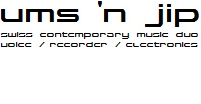2018 __ Dark Matter
![]()
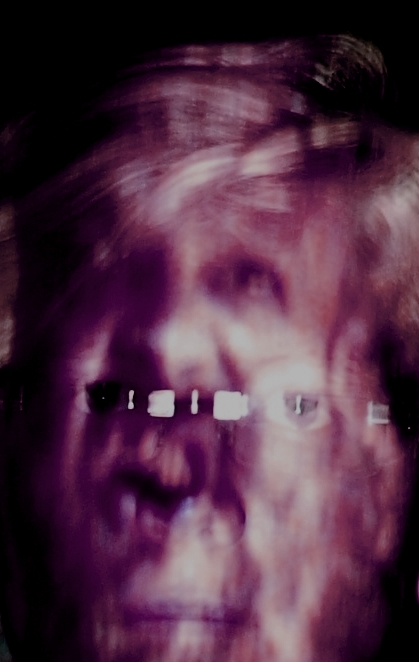
![]()
PROGRAM
Adam Roberts (USA)
Dark Matter (Armantrout), 2016
Olive Trees (Osborne), 2018, UA
Virgen del Mar (Osborne), 2018, UA
German Alonso (*1984, Esp)
catulo carmen XVI (Catull), 2013
JIP (CH)
aeeio-cdllrr (Garcia Lorca), 2018, UA
UMS (CH)
4-HL (Heine), 2018, UA
Erik Oña
5 Lieder nach Emily Dickinson (Dickinson), 1996/2003
arr. for recorder and male voice, 2018
Guo Wenjing (China)
Peach Blossom (Hai Zi), 2010
Luis Codera Puzo
oscillation ou interstice (Gayraud), 2013
![]()
IDEA
Dark Matter - ein Liederabend. Dark Matter ist einerseits
der Titel eines Liederzyklus des Amerikaners Adam Roberts,
welches er im Auftrag von UMS 'n JIP für das Duo komponiert
hat, andererseits steht es als Metapher für die im
Musikbetrieb allmählich verschwindende Gattung des
Kunstliedes, welches in diesem Programm in ungewohnter
Besetzung (Stimme, Blockflöte und Elektronik) eine neue
Facette und Reflektionsebene erhält: Die Feinheit der
vertonten Sprache hallt in der nuancierten und
aussergewöhnlich reichen Klangwelt UMS 'n JIP's
vielschichtig und plastisch nach. Alle Komponisten zeichnen
eine mehrjährige Zusammenarbeit mit UMS 'n JIP aus, vielfach
sind es die Folgewerke eines mehrjährigen Prozesses und
Austausches, so dass die Werke schon bei der Première über
eine aussergewöhnliche Reife verfügen.
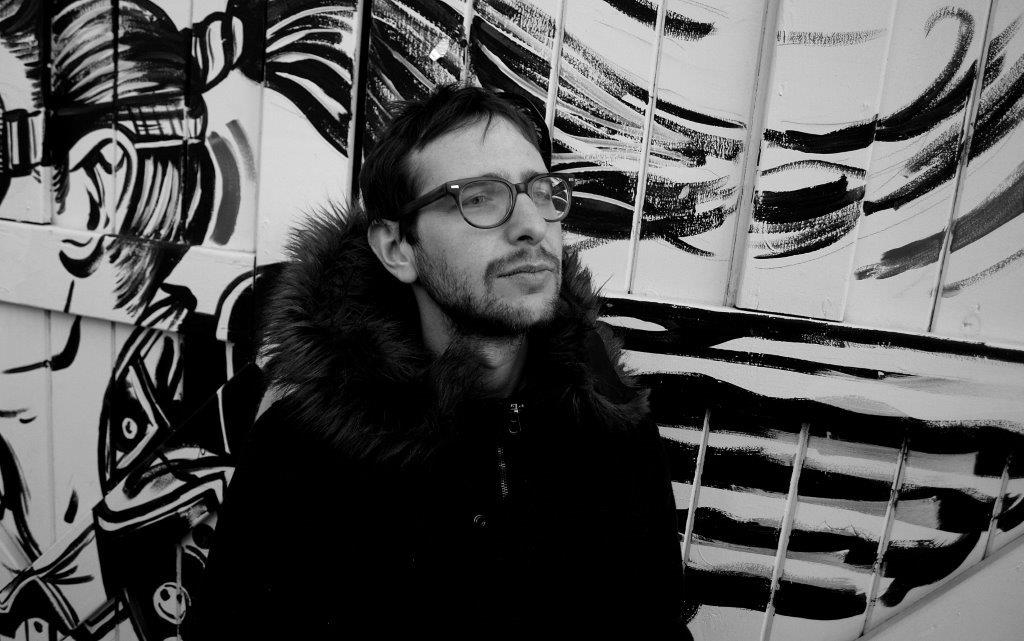
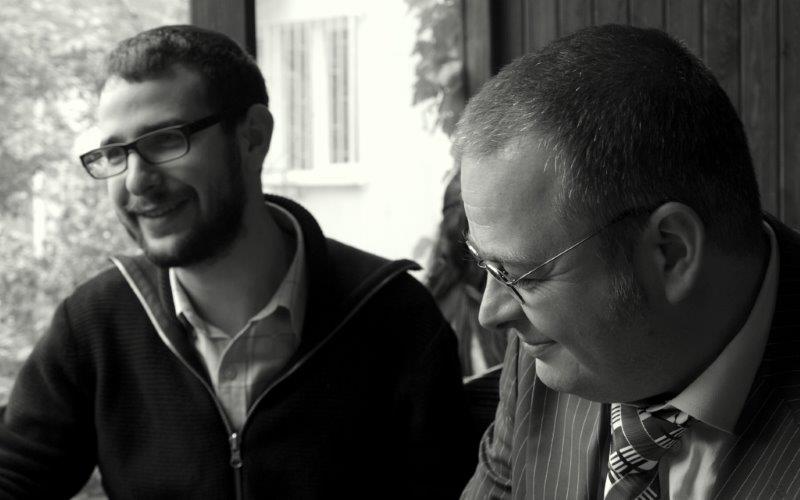
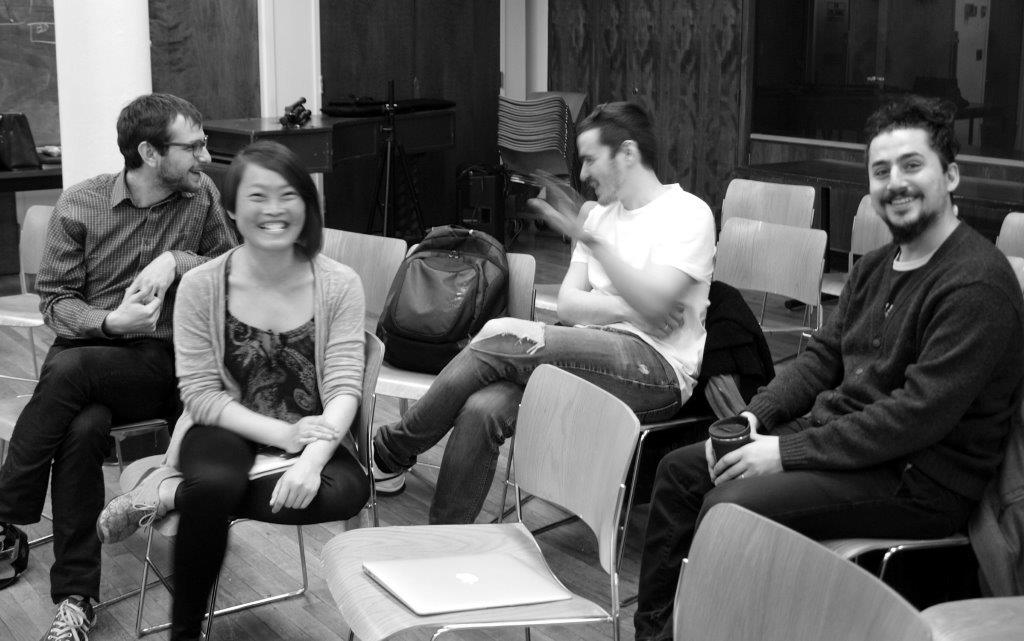
with Adam Roberts (Istanbul 2014, New York 2016)
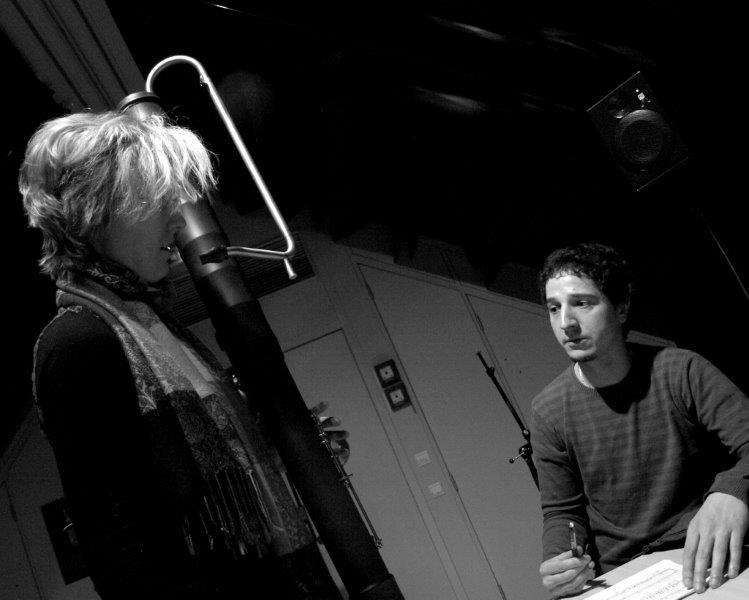
with German Alonso (Paris 2013)
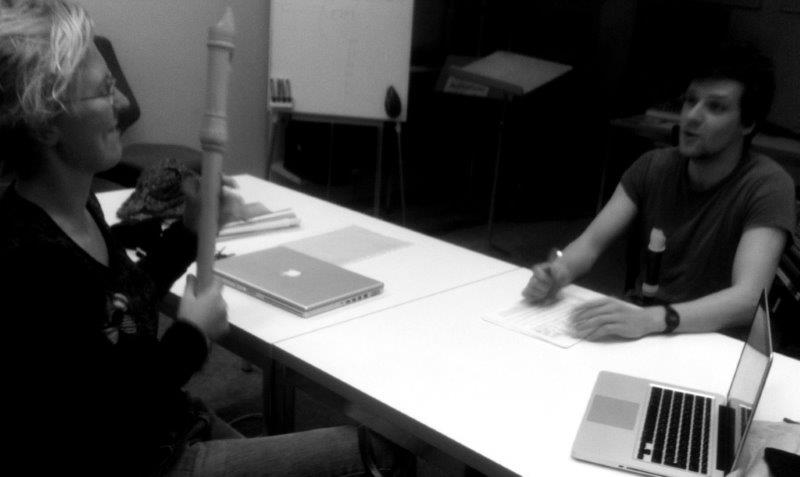
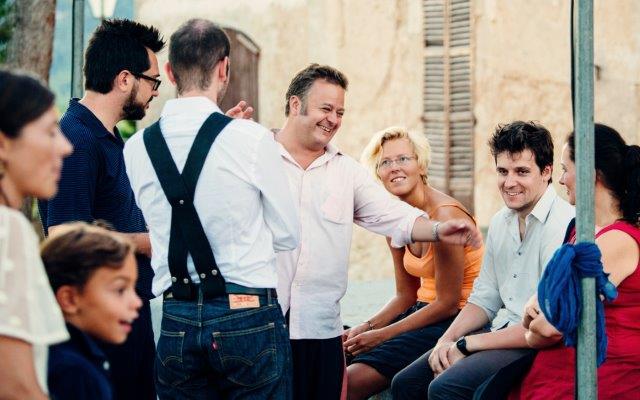
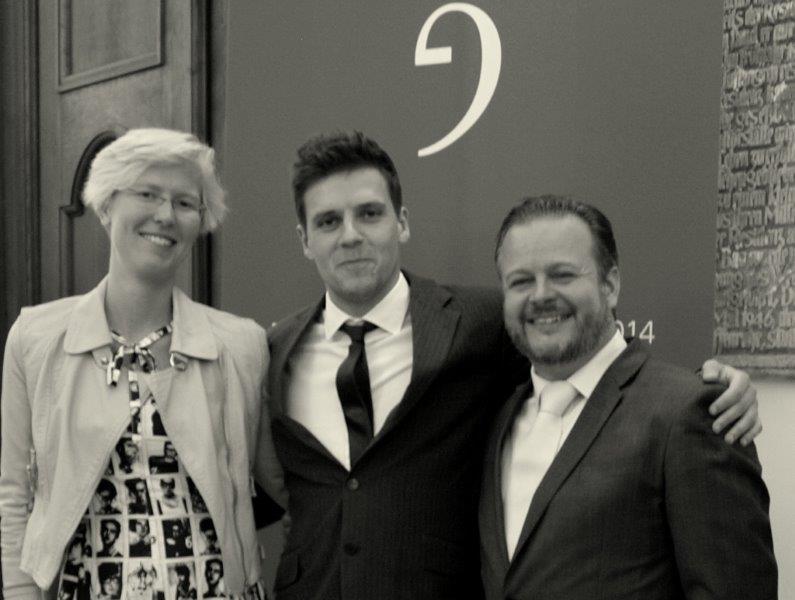
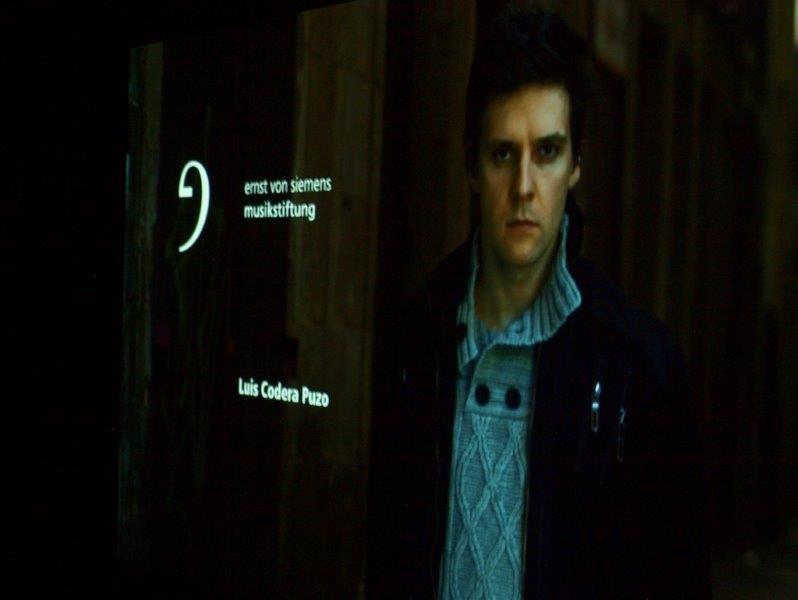
with Luis Codera Puzo (Basel 2012, Palma 2013, München 2014)
with Guo Wenjing (Shanghai 2009)
with Erik Ona (Archipel Geneva, 2017)
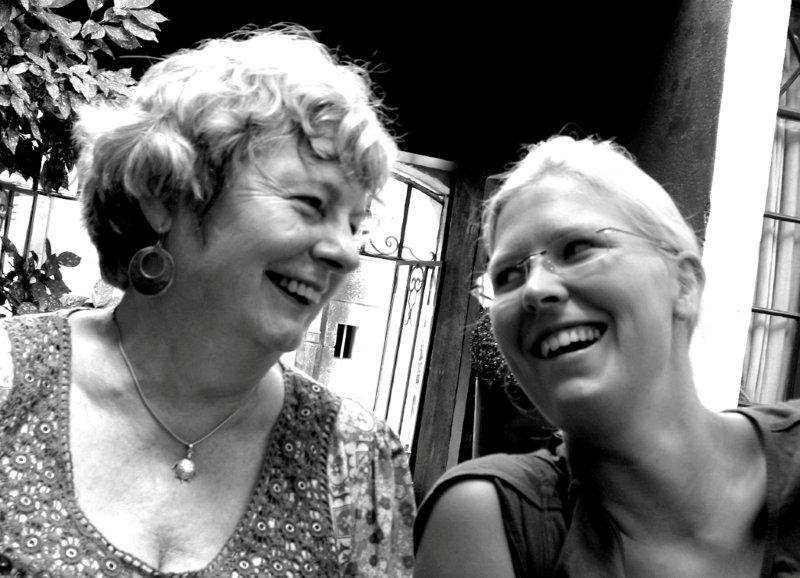
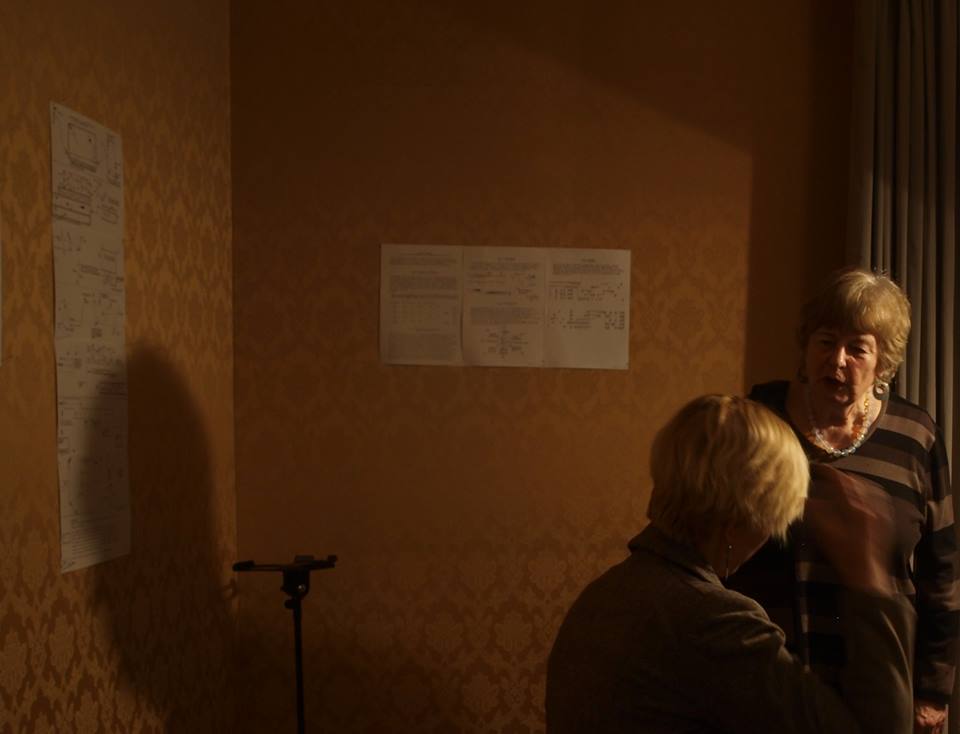
with Maria Porten (Avignon 2010, Winterthur 2017)
![]()
VIDEO
![]()
COMPOSERS
Adam Roberts’ music has been recently performed by ensembles such as the Arditti Quartet, the JACK Quartet, le Nouvel Ensemble Moderne, the Callithumpian Consort, Earplay, fellows of the Tanglewood Music Center, the Boston Conservatory Wind Ensemble, the Association for the Promotion of New Music, violist Garth Knox, Guerilla Opera, and at festivals such as Wien Modern (Vienna), Tanglewood, the Biennale Musique en Scene (Lyons), and the 2009 ISCM World Music Days (Sweden). Awards for Roberts’ music include the Benjamin H. Danks Award from the American Academy of Arts and Letters, an ASCAP Morton Gould Young Composer Award, the Bernard Rogers Prize (Eastman), the New York Bohemians Prize (Harvard), the André Chevillion-Yvonne Bonnaud Prize from the Orléans Piano Competition, the Earplay Donald Aird Award, the Christoph and Stefan Kaske Fellowship from the Wellesley Composers Conference, the Leonard Bernstein Fellowship from the Tanglewood Music Center, the Bldodgett Prize (Harvard) as well as other academic scholarships and awards. Commissions have come from the Callithumpian Consort, the Boston Conservatory Wind Ensemble, pianist Nolan Pearson, the Tanglewood Music Center, Guerilla Opera, and others. Roberts’ music has been called “a powerful success,” “arresting,” and “amazingly lush,” (theBoston Musical Intelligencer), “an attractive mix of the familiar and exotic,” and “otherworldly” (Boston Classical Review), and “invigorating” with a “persistent melodic urge” (American Academy of Arts and Letters citation). Roberts obtained a Bachelor’s degree in composition from the Eastman School of Music in 2003 and his Ph.D. from Harvard University in 2010. Roberts also studied at the University for Music and Performing Arts in Vienna from 2007-2008 on a Harvard University Sheldon Traveling Fellowship. Roberts’ primary teachers have included David Liptak, Augusta Read Thomas, Julian Anderson, and Chaya Czernowin, and he has also studied with Steven Stucky, Martin Bresnick, Bernard Rands, Joshua Fineberg, Magnus Lindberg, and Rand Steiger. In addition, Roberts has had lessons and masterclasses with composers such as Brian Ferneyhough, Helmut Lachenmann, John Adams, John Harbison, Lee Hyla, Alvin Lucier, and Jonathan Harvey. Roberts has taught at Harvard University and Istanbul Technical University’s Center for Advanced Studies in Music. Roberts’ first disc, “Leaf Metal,” was released on Tzadik Records in January, 2014.
http://adamrobertscomposer.com/
Germán Alonso was born in Madrid (Spain) in 1984. He studied Guitar and Composition (specialization in Electroacoustic Composition) at the Real Conservatorio Superior de Música de Madrid, obtaining the highest marks. At the same time, he has studied computer-assisted composition, audio synthesis and live electronics with Alberto C. Bernal. Currently he is studying a Master in Musicology in Paris 8 University and a Specialisation Cycle in Composition at the Strasbourg Conservatoire with Mark André. He has attended master classes and courses held by composers Alberto Posadas, Aureliano Cattaneo, Hèctor Parra, José María Sánchez-Verdú, Brian Ferneyhough, Yan Maresz and Luca Francesconi, among others. He has been selected for Domaine Forget’s “Musique Nouvelle 2012”, “Voix Nouvelles 2011” of the Royaumont Fondation, the “International Composers Pyramid 2011” in Canterbury, the “Contemporary Music Meeting INJUVE” 2011 (Spanish Youth Institute), Cátedra “Manuel de Falla” 2009 and 2010 in Cádiz (Spain) or the European Musical Creation Workshop 2009 and 2010 in Madrid (Spain), among others. His instrumental, mixed and acousmatic works have been played in Spain, France, UK and Mexico in festivals such as Ensems (Valencia, Spain), Festival de Primavera de Yucatán (Mérida, Mexico) or Festival de Música Española (Cádiz, Spain) by ensembles Xasax, Grup Instrumental de València, Sigma Project, Zahir Ensemble, Taller Sonoro, s’ensemble or SequenzaSUR, for instance. He was prizewinner in composition competitions II Seminario Permanente de Composición de Valencia and II Concurso de Composición “Carmelo Bernaola”, and finalist in the 8th Composition Competition “Città di Udine”. He has been selected in the 2010 edition of the “Laboratorio del espacio” of the Spanish CDMC (Contemporary Music Center). He has received commissions from the Institut Valenciá de la Música, the Cátedra “Manuel de Falla”/Government of Andalusia or the sax quartet S@X21, among others, and scholarships from the “La Caixa” Fondation, the Spanish Government-Ministry of Education or the Association des amis de Royaumont. His scores are published by BabelScores.
Luis Codera Puzo (Barcelona, 1981) divides his time between composition, performance and creation on the modular synthesizer and electric guitar and the direction of several musical projects. He is responsible for the artistic direction and management of the CrossingLines ensemble, the artistic direction of the OUT.SIDE festival, and several pedagogic activities. He was self taught in his early musical education. Later, he studied electric guitar, piano, trombone, percussion, Big Band theory and arrangement in diverse styles including jazz, modern music, classical music or electronic music. Gradually, he focused on composition, studying with Agustí Charles and Wolfgang Rihm; and taking several master classes, amongst which lessons with Pierluigi Billone were especially noteworthy. An important aspect of his education is the exhaustive work with musicians performing his music. Groups such as CrossingLines, Klangforum Wien, the ensemble recherche, the Ensemble Modern, the Ensemble intercontemporain, Camerata Variabile Basel, Orchestre Nationale de Lorraine, UMS ‘n JIP, the Minguet Quartett, and the TEMA ensemble. In 2014, Col legno recorded a monographic CD of Luis Codera Puzo, with the ensemble recherche, the Ensemble Modern, the UMS ‘n JIP duo and the CrossingLines ensemble. He has received grants from the Catalonia Arts National Board, the culture department of the Generalitat de Catalunya, the Deutscher Akademischer Austausch Dienst, the Hoepfner foundation, the Christoph-und-Stephan-Kaske-Stiftung foundation and the French Ministry for Culture. He has won the XIX Composition Award from Colegio de España y del INAEM, and the INJUVE 2011 Composition Award. In 2014, he was one of the winners of the Ernst von Siemens Foundation Composition Award. He is the founder, artistic director, manager, electric guitar and modular synth performer of the CrossingLines ensemble, a group that has emerged as one of the main forces of change on the Barcelona new music scene. He is the director and founder of the OUT.SIDE festival, a musical season which presents new music in various art galleries around Catalonia. He is Composition teacher at the Superior del Taller de Músics and also manages a workshop for composition and instrumentation with CrossingLines in the Escola Superior de Música de Catalunya (ESMUC). In addition to this, he holds regular conferences and talks on his work for various pedagogical courses and schools of music such as the Conservatori del Liceu or the Curso Internacional de Composición If-bmp.
Maria Porten. Born in Germany
8.6.1939. After the war soon on normal education track:
schools, studies at the University of Cologne (German
language, musique, philosophy, college of musical
education). For a year, teaching German literature in
Carbondale, Illinois, USA. In Switzerland: Doctoral thesis
„Debussy and his musical genre“. Teaching assignment at a
school for adult education.
Private composition studies.
Engaged
Projects:
2003 Srebrenica - Behaudin Trakic
2004 Advent of the animals - Karlheinz Röder.
2006 Vontobel
Price
Cooperation with contemporary authors, poets, stage
directors and ensembles.
2006 Once there was a paradise - Portrait CD VDE-Gallo
2007 Ferne Schritte. Nähe - Switzerland meets
Japan
2010 Frauenzauberfrauen - Walter Studer - commissioned by
Gesellschaft Rezital Zürich
2011 Sargnääl möt Köpp - Ludwig Soumagne (Kölsch, Cologne
dialect)
2013 Hexenzauber - Ariane Braml
2013 Lorelay (Melodrama) - Clemens Brentano
2016 Warten - Walter Studer - from : Wege und Warten,
coproduced with Werner Bärtschi
2017 Haschen nach Wind - for the 100. anniversary of
Gerhard Meier, famous Swiss author, commissioned by
Musikpodium der Stadt Zürich, broadcasted by Swiss Radio SF2
Kultur
Sang et Lueurs (setting poems by Jacques Prévert) and
lebelight (setting poems by Ivar Breitenmoser, from „Zürich
tanzt Bolero“) have been performed by UMS 'n JIP in
Switzerland, Spain, Greece, Turkey, Japan, China, Berlin,
Wien, Avignon, St.Petersburg, Moscow, Riga, Cairo and New
York. Both works, staged within "EINER" as a contemporary
opera by Pablo Maritano and Eugenio Szwarcer, have been
given at the Centro de Experimentation del Teatro colon in
Buenos Aires. Most recent work: „Olive Trees“ and „Virgen
del Mar“ are chapters from the literary work „Walls of
Paradise“, in which Jeanine Osborne relocates the biblical
legend of paradise into a village callled Val Paraiso in
Andalusia, Spain.
Erik Ona. 1961-2019. Geboren in Córdoba, Argentinien. Musikstudium an der Staatlichen Universität in La Plata, Argentinien und an der State University of New York in Buffalo, USA. Er erhielt zahlreiche Preise, Stipendien und Aufträge, u.a. 1991 Forum '91 mit dem Nouvel Ensemble Moderne, De Ijsbreker, Nieuw Ensemble, Stuttgarter Oper, Hannoveraner Tage für Neue Musik, Europäischer Musikmonat (Basel 2001), Ensemble Intercontemporain. 1998 Stipendium des IRCAM in Paris. 1998/2000/2001 Stipendium des ZKM. 1995/96 Stipendium der Akademie Schloss Solitude. Als Dirigent erarbeitete er zunächst traditionelles Repertoire mit verschiedenen argentinischen Orchestern. Später konzentrierte er sich auf Neue Musik. 1990-93 war er Dirigent am CEOB (Zentrum für experimentelle Oper und Ballett), Teatro Colón, Buenos Aires. Zusätzlich dirigierte er verschiedene Neue Musik Ensembles wie zum Beispiel Sinfonieta Omega und Chamber Ensemble of the Goethe Institut. Ab 1993 dirigierte er auch in den Vereinigten Staaten und in Europa, unter anderem: June in Buffalo chamber ensemble, JIB Brass Ensemble, The Instrumental Factor, New York New Music Ensemble, Buffalo Philharmonic Orchestra, Kammer Ensemble Neue Musik Berlin, Champ D'action (Belgien), Ensemble Resonanz, Darmstadt Ferienkurse für Neue Musik und Warschau Herbst. Bis jetzt hat er über 150 Werke uraufgeführt, von Kammerensemble Stücken bis zu Opern. 1994-96 war er Dirigent des Ensembles für zeitgenössische Musik an der State University of New York at Buffalo. Seit 1996 ist er ständiger Dirigent des Thürmchen Ensembles. Er ist Gründer und Direktor des Zentrums für weiterführende Studien der zeitgenössischen Musik in Buenos Aires. Von 1989 bis 1993 war er Professor für Komposition und Orchestrierung an der Staatlichen Universität in La Plata. 1995 Gastprofessor für Komposition und Computermusik am Kunitachi College of Music in Tokyo. 1995-2001 unterrichtete er Komposition an der Universität in Buffalo/USA. Bis 2003 unterrichtete er Komposition und dirigierte das Ensemble für zeitgenössische Musik an der Birmingham University, UK. Zur Zeit unterrichtet er Komposition und ist Leiter des Elektronischen Studios der Hochschule für Musik an der Musik-Akademie der Stadt Basel, Schweiz.
http://www.esbasel.ch/Informationen/erikLebenslauf
Guo Wenjing was born in 1956 in Chongqing, an ancient city of China’s mountainous Sichuan province, and the resulting combination of urban tension and regional folklore in his formative years has fused together into a highly distinctive compositional voice. In 1978, Guo was one of a hundred students admitted out of 17,000 applicants to Beijing’s reopened Central Conservatory of Music. Unlike many colleagues from this acclaimed class (Tan Dun, Chen Yi, Zhou Long), Guo remained in China after graduation except for a short stay in New York (on an Asian Cultural Council grant) and has spent little time outside his home country. Guo’s prolific output includes the internationally acclaimed chamber operas WolfCubVillage (1994) and Night Banquet (1997-98/2001). The former, based on Lu Xun’s Diary of a Madman, was premiered at the Holland Festival, and after a subsequent performance in Paris, Le Monde compared his “masterpiece of madness” to Berg’s Wozzeck and Shostakovich’s The Nose. Night Banquet, inspired by a painting about the Song dynasty court official Han Xizai, was first produced at the Almeida Theatre (London) and the Hong Kong Arts Festival. A subsequent production, premiered at the Paris Autumn Festival, has also appeared at the Berlin, Lincoln Center, and Perth International Arts festivals. In October 2003, both operas received their Chinese premiere at the 6th Beijing Music Festival, directed by Lin Zhaohua of the Beijing People’s Art Theatre. Guo’s recent chamber opera output include Mu Guiying (2003) and Hua Mulan (2004), new Beijing operas directed by Li Liuyi that premiered at the Beijing Capitol Theatre, and Fengyiting (2004), written for Beijing opera tenor and Sichuan opera soprano, premiered in the Concertgebouw in Amsterdam. Critics from many countries have responded to Guo’s “unparalleled musical beauty and dramatic power” (Le Monde), and found his work “pungent and vivid” (The Guardian), “uninhibited and pure” (Het Parool) and “subtle and unusual” (Frankfurter Allgemeine Zeitung), with the composer “showing his credentials as a man of the theatre” (Financial Times) with “a highly original sense of operatic possibility” (The Independent). Guo’s music first became known in the West in 1983, when his Suspended Ancient Coffins on the Cliffs on Sichuan premiered in Berkeley, California. The piece clearly salutes Bartok, highlighting two solo pianos with a battery of percussion instruments, but the strong imprint of Guo’s own Sichuanese roots is unmistakable in the orchestral writing. Shu Dao Nan [“Hard are the ways of Sichuan”] (1987), a symphonic poem with voices, is a setting of Li Bai’s poetry, which the official People’s Music Publishing House selected as part of its series “Twentieth-Century Distinguished Chinese Classics.” Chou Kong Shan [“Sorrowful, Desolate Mountain”] (1992, rev. 1995), a concerto for Chinese bamboo flute, was premiered by the Goteborg Symphony Orchestra in Sweden under the baton of Neeme Järvi. Guo’s other orchestral works include concertos for violin, cello, and harp. His most recent work, written for soprano and orchestra, Journeys, was a commission premiered by Edo de Waart and the Hong Kong Philharmonic in October 2004. The text for Journeys was taken from epic poetry by contemporary Chinese poet Xi Chuan.Apart from his chamber music for traditional western string quartets and percussion ensembles, Guo also has composed Late Spring (1995) for Chinese ensemble and Sound from Tibet (2001) combining instruments from China and the West. Among his most performed chamber works are Drama (1995, a trio for three percussionists who also speak and sing), Inscriptions on Bone (1996, for alto singer and 15 instruments), and She Huo (1991, for eleven players), and Parade (2004, a sequel to Drama, for three percussionists). Guo has also composed music scores for 20 feature films and 25 television films in China. At home, Guo has been honored among the Top 100 Living Artists of China. Abroad, his works have been featured at festivals in Amsterdam, Berlin, Glasgow, Paris, Edinburgh, New York, Aspen, London, Turin, Perth, Huddersfield, Hong Kong and Warsaw, and at such venues as the Frankfurt Opera, Berlin’s Konzerthaus, Amsterdam’s Concertgebouw, Washington’s Kennedy Center and New York’s Lincoln Center. He has written works for such internationally distinguished ensembles as the Nieuw Ensemble, Atlas Ensemble, Cincinnati Percussion Group, Kronos Quartet, Arditti String Quartet, Ensemble Modern, Hong Kong Chinese Orchestra, Goteborg Symphony Orchestra, China Philharmonic Orchestra, Guangzhou Symphony Orchestra, and Hong Kong Philharmonic Orchestra. The former head of the composition department of the Central Conservatory, where he still remains on the faculty, Guo maintains a busy schedule as composer and educator. His forthcoming works include: a concerto for erhu (Chinese two-stringed fiddle) co-commissioned by the Singapore Symphony Orchestra (worldpremiered on 19 January 2007) and the Bavarian Radio’s longstanding concert series “Musica Viva”; the opera Poet Li Bai (upon the most famous Tang dynasty poet) the world premiere of which was on July 2007 in Denver (Colorado) during the Summer Festival of the Central City Opera. European premiere took place in Rome, May 2008.Both works receive their premieres in 2007. In October 2009, JIP premiered the Madman's part in 'Suite from Wolf Cub Village' at 2nd Int. New Music Days Shanghai.
http://en.wikipedia.org/wiki/Guo-Wenjing
Extraordinary diversity describes the composer and multi-instrumentalist Ulrike Mayer-Spohn who plays the recorder (with a focus on contemporary music), as well as historical string instruments (fiddle and baroque violin). She studied composition and audio design with Erik Oña at the Studio of Electronic Music, Academy of Music, Basel, beginning to compose in 2007, and receiving commissions from the festival Forum Valais and the international New Music Days, Shanghai. Her work has been performed by the Stuttgart Vocal soloists, Ensemble Phoenix Basel, Vertigo, DissonArt, L'Arsenale, cool a cappella (1st Prize world choir games 2008) and her own ensemble Ums' n Jip in Switzerland, France, Greece, Italy, Russia, Australia, the USA and China, premiered under the baton of Beat Furrer, Mark Foster, Tsung Yeh, Jürg Henneberger and Filippo Perocco and broadcast by the Swiss radio. She was awarded the 1st Prize at the London Ear Festival Composition Contest in 2016, the 1st Prize at the Walter Ferrato Composition Contest in Savona, Italy in 2017, the 1st Prize at the Weimarer Frühjahrstage für Zeitgenössische Musik Composition Contest in 2017, the 2nd Prize in the composition competition Culturescapes 2010, 2nd Prize in the composition competition at the Bern music festival 2011, the Scholarship Award for 2011 at the Music Village Mount Pelion in Greece and the Call for Scores Award L'Arsenale Treviso, Italy 2011. In the ensemble Ums' n Jip she has undertaken research in the field of musical theater (chamber operas One, Two, Three, Four, Five), live electronic music and sound spacialization. She studied recorder with Ulrike Mauerhofer at the Musikhochschule Karlsruhe, with Conrad Steinmann and Corina Marti at the Schola Cantorum Basel before specializing in contemporary music and studying with Dorothea Winter at the Royal Conservatory in The Hague. From 2009-11 she studied for a specialized master's degree in contemporary performance at the HSM in Basel supervised by Jürg Henneberger, Marcus Weiss and Mike Svoboda and has taken masterclasses with Marion Verbruggen, Peter van Heyghen, Sebastien Marq and Gerd Lünenbürger. She studied baroque violin and viola with Martina Graulich and David Plantier and fiddle with Randal Cook in Basel. Ulrike Mayer-Spohn works with internationally leading composers and annually plays more than 20 world premieres dedicated to her, which she has recorded for the radio as well as VDE Gallo on CD. Together with the Swiss composer and singer Javier Hagen, she established the experimental new music duo Ums `N Jip for voice, recorder and electronics, which, alongside the Ensemble Modern, Intercontemporain and Kronos is one of the most active ensembles worldwide and in 2011 won the prestigious MusiquePro scholarship. Since 1999, Ulrike Mayer-Spohn has also performed as a recorder player, violinist, violist and fiddle player in specialized early music ensembles such as the Amsterdam Barok Compagnie, Freitagsakademie, Collegium Musicum Stuttgart, La Chapelle Ancienne, Musica Poetica, Muscadin and La Morra and has performed in Germany, China, the Netherlands, France, Spain, Italy and Switzerland.
Javier Hagen is one of the most astonishing classical singers of his generation: new music, performance art and Swiss folk music rank equally in his repertoire alongside opera and early music. Hagen was born as Javier-Ignacio Palau-Ribes (JIP) in 1971 in Barcelona and raised on the Mediterranean and in the Valais Alps. He studied classical singing (both tenor and countertenor) in Germany, Italy and Switzerland with Roland Hermann, Alain Billard and Nicolai Gedda, and composition with Heiner Goebbels and Wolfgang Rihm. He studied Lied with Irwin Gage, Hartmut Höll and Ernst Haefliger and early music with Karel van Steenhoven and Kees Boeke. He has a four-octave vocal range. Hagen has worked with world-class composers such as Reimann, Kagel, Rosemann and Eötvös and leading artists from the worlds of concrete poetry and constructive art. Guest appearances have taken him to the modern music festivals in Donaueschingen, Zurich, Geneva, Lucerne, Karlsruhe, Amsterdam, Strasbourg, Bologna, Milan, Prague, New York, Hong Kong, Shanghai, Moscow, St. Petersburg, Adelaide, Riga, Avignon and Berlin. Alongside operatic roles such as Handel's Giulio Cesare, Zsupan (Kalman), Dardanus (Rameau), Stanislaus (Zeller), Bruno (Roesler), Toni (Kalman) and Pappacoda (Strauss), Javier Hagen has premiered more than 200 works, including operas 'à l'air en verre' by Daniel Mouthon 'eismeer' by Christoph Schiller, 'poem ohne held' by Regina Irman, 'esther de racine' by Boris Yoffe, 'The Madman's Diary' by Guo Wenjing, 'Marienglas' by Beat Gysin, 'Les Musiciens de Brème' by Wen Deqing, 'Keyner nit' by Mathias Steinauer, 'Ushba et Tetnuld' by Nicolas Vérin and almost all vocal works by Maria Porten. He has made more than 50 recordings and broadcasts for Swiss, German, French, Czech, Chinese, Mongolian, Spanish, Egyptian, Italian and Latvian radio and television. He won prizes at international contemporary music and composition competitions in 2001, 2004 and 2008 in Basel, Lausanne and Dusseldorf. In 2003, his distorted folk song arrangements "s´sch mr alles 1 Ding" were released on CD on the Swiss label "musiques suisses". His compositions, in particular the vocal works, are performed throughout Europe, Israel, China, Korea, Russia, Australia, North and Central America, by ensembles and conductors including Titus Engel, Ensemble Phoenix, dissonArt, Taller Sonoro, Basler Madrigalisten, Schweizer Jugendchor, Männerstimmen Basel, Philip Bride, Eliana Burki, Amar Quartet. In 2012, a selection of his graphic scores was shown at the prestigious Museum of Modern Art ‘haus konstruktiv’ in Zurich. At the European Youth Choir Festival 2012, Javier Hagen represented German-speaking Switzerland in the context of 'Swiss Composers meet Europe'. With Ulrike Mayer-Spohn, Hagen formed the experimental new music duo UMS 'N JIP, which, with over 100 concerts annually is one of the most active and prolific contemporary music ensembles around the world and winner of more than 20 awards, among them the prestigious scholarship MusiquePro. Javier Hagen, who speaks 6 languages, also directs the international contemporary music festival Forum Wallis, hosting Stockhausen's famous Helicopter String Quartet with Arditti in 2015. He is called as an expert on experimental music theater for the University of Arts in Bern, President of the Swiss Section of the International Society for Contemporary Music (ISCM Switzerland), of IGNM-VS, as well as a board member of the European Conference of Promoters of New Music ECPNM, Swiss Music Edition and Swissfestivals. He presents guest lectures at universities in Shanghai, Moscow, Adelaide, Thessaloniki, Barcelona, New York, Riga and Hong Kong. He is a jury member at national and international composition and new music competitions (a.o.ISCM World Music Days Young Composers Award, Bohol Int. Choir Competition Philippines) and a member of various committees on behalf of Valais as well as for the inventory of the cultural heritage on behalf of UNESCO. In 2007 he was nominated for "Walliser of the Year." In 2013 he was awarded the Prix Culturel de l'Etat du Valais. In 2017 he has been elected to the Academic Board of the Escuela de Invierno, the FNOBA Contemporary Opera Academy at the Teatro Colon in Buenos Aires.
![]()
PHOTOS
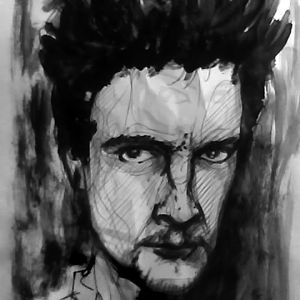
Luis Codera Puzo
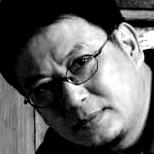
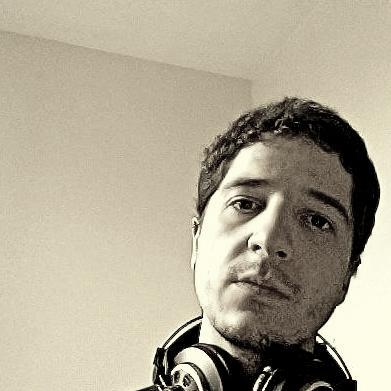
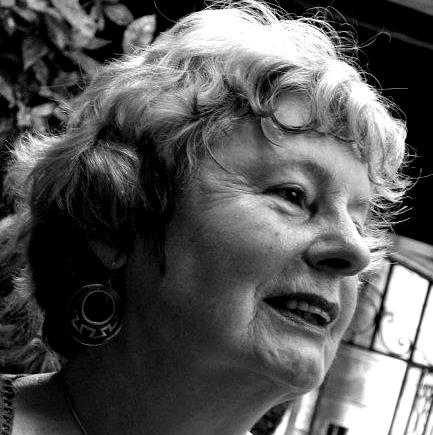
Guo Wenjing, Adam Roberts, German Alonso,
Maria Porten, Erik Oña
UMS 'n JIP
![]()
POETS
Irène Gayraud est née à Sète (France)
en 1984. Son premier livre de poésie, à distance de
souffle, l’air, est paru aux Éditions du Petit Pois en
décembre 2014. Son recueil de poèmes en
prose Voltes est paru en mai 2016 aux éditions Al
Manar. Un troisième livre, intitulé Point d’eau a
été publié aux Éditions du Petit Véhicule en 2017. Elle a
publié des textes dans des revues françaises et
étrangères ainsi que dans des anthologies. En collaboration
avec Christophe Mileschi, elle a publié une traduction des
oeuvres poétiques de Dino Campana, aux éditions Points
Poésie. Elle est par ailleurs membre de l’Outranspo (Ouvroir
de translation potencial). Musicienne, elle s’intéresse
particulièrement aux rapports entre musique et poésie,
ce qui la conduit à travailler en collaboration avec des
compositeurs contemporains comme poète et récitante (Luis
Codera Puzo, Helena Winkelman, Raphaël Lucas, Fernando
Munizaga)
https://irenegayraud.wordpress.com
Rae Armantrout (born April 13, 1947) is
an American poet generally associated with
the Language poets. She has published ten books of
poetry and has also been featured in a number of
major anthologies. Armantrout currently teaches at
the University of California, San Diego, where she is
Professor of Poetry and Poetics. On March 11, 2010,
Armantrout was awarded the 2009 National Book
Critics Circle Award for her book of
poetry Versed published by the Wesleyan
University Press, which had also been nominated for the
National Book Award. The book later earned the
2010 Pulitzer Prize for Poetry. Armantrout’s most
recent collection, Itself, was published in February
2015. She is the recipient of numerous other awards for her
poetry, including an award in poetry from the
Foundation for Contemporary Arts in 2007 and
a Guggenheim Fellowship in 2008. In 2016,
Armantrout, Adam Roberts and UMS ´n JIP gave a concert
together at Zinc´s NYC.
https://en.wikipedia.org/wiki/Rae_Armantrout
Jeanine Osborne. Nach einem Universitätsabschluss in
englischer und amerikanischer Literatur und der
Schauspielakademie in Tel Aviv, Gesangsunterricht bei Vera
Rozsa (London), Sylvia Gähwiller und Maria Stader (Zürich).
Erste Engagements im Bereich Musiktheater (Habima
Theater Tel Aviv; Edison Theatre, New York; Institute of
Contemporary Arts, London) sowie Auftritte mit dem
Tonhalle-Orchester Zürich. Gleichzeitig fühlt sich Osborne
mehr und mehr zur bildenden Kunst und Literatur
hingezogen, was in den späten 1980er-Jahren zu ersten
Einzelausstellungen in den Galerien Arrigo und Palette in
Zürich führt. Seither lebt Osborne in der Schweiz.
http://www.jeanineosborne.com/Jeanine_Osborne/home.html, http://sikart.ch/jeanine osborne
He was one of the most famous poets in Mainland China after the Cultural Revolution. He committed suicide by lying on the rail
in Shanhaiguan at the age of 25. Zha Haisheng was born in an agricultural family of a small village in Anhui Province. He spent
his childhood in traditional Chinese rural areas when the whole country was involved in the Cultural Revolution. In 1979, he was enrolled
in Peking University at the age of 15. He began to write poems as a student in early 1980s. After graduation, he worked in China University
of Political Science and Law. He kept sending his own poems written in an extremely dull environment of life to different newspapers
and publishers but was hardly accepted. He remained unknown to common readers until his death. Hai Zi was fascinated with Tibetan
culture and Qigong in his last years. He ended his life by lying on the rail not far from Shanhaiguan near his 25th birthday. A bag with
a Bible, a book of selected stories by Joseph Conrad, Walden by Henry David Thoreau, and Kon-Tiki by Thor Heyerdahl was f
ound beside his body. His death is now regarded as an important event in modern Chinese literature with some suggesting it symbolizes
"the sacrifice of the agricultural civilization". Not long after his death, most of his works were published by major publishers of China and
were spread rapidly over the country. Hai Zi has become one of the most quoted poets after the New Culture Movement. His mystical life
and death remain an important topic of Chinese literature and society. A cult of Hai Zi involves young people from all over China since the
1990s, though he is still not entirely accepted by older experts. Hai Zi's poems have a strong influence on the popular culture in Mainland China.
Some of his poems have been set to songs. Hai Zi wrote several long poems, "choral operas" and countless short poems in his brief life.
His style is generally described as "anachronism". Many of his short poems contain symbolic images like Land, Sea and Wheat field and
recall the ideals of the ancient Chinese pastoral poet Tao Yuanming. Hai Zi was also obviously influenced by Western philosophy and arts,
especially Nietzsche and Van Gogh. And the strong sense of mysticism in all of his works is probably one of the most important characteristics
which turned him into a unique figure of Chinese literature. Some of his poems have been translated into English. A bilingual book of his
poems Over Autumn Rooftops, translated by Dan Murphy, was published in 2010 by Host Publications. A new bilingual book, Ripened Wheat:
Selected Poems of Hai Zi, translated by Ye Chun, was out from the Bitter Oleander Press in 2015. Hai Zi's short poems are his most popular works.
Some of them are now classics of 20th-century Chinese literature and are quoted frequently.
https://en.wikipedia.org/wiki/Hai_Zi
gilt als bedeutende amerikanische Dichterin. Ihre Gedichte, erstmals 1890 nach ihrem Tod veröffentlicht,
scheinen stilistisch vielfach ins 20. Jahrhundert vorzugreifen. Emily verbrachte ihr gesamtes
Leben in Amherst, Massachusetts. Sie entstammt einer alteingesessenen, calvinistischen Familie.
Ihr Vater war Rechtsanwalt und Schatzmeister des Amherst College, das ihr Großvater gegründet hatte,
sowie zeitweise auch Kongressabgeordneter. Emily besuchte die Amherst Academy (1834–1847),
wo sie Unterricht in klassischer Literatur, Latein, Geschichte, Religion, Mathematik und Biologie erhielt.
Danach wechselte sie auf das Mount Holyoke Female Seminary (1847–1848), eine konservativ-evangelikale
Schule für Mädchen. Dort fiel sie ihren Lehrern durch ihre Intelligenz auf, sie war jedoch physisch und
psychisch anfällig und litt an Depressionen, so dass sie die Schule nach nur einem Jahr abbrach.
Obwohl Emily Dickinson fast ihr ganzes Leben in ihrem Haus verbrachte, ist ihr lyrisches Werk von
enormer Weite geprägt, denn sie war mittels ihrer Vorstellungskraft in der Lage, die kleine und überschaubare Welt,
in der sie lebte, in eine große Welt zu verwandeln. Ihre bevorzugten Themen sind Natur, Liebe,
Tod und Todeserwartung, Unsterblichkeit und auch Entsagung und Verzicht (“renunciation”) sowie die
Transzendenz des Zeitlichen. Der Bruch mit klassischen Formen der Lyrik, die zahlreichen Gedankenstriche
und die nicht zu Ende geführten Gedanken erschweren allerdings die Interpretation ihres lyrischen Werks.
https://de.wikipedia.org/wiki/Emily_Dickinson
Er stammte aus Verona. Catull gehörte zum Kreis der Neoteriker und orientierte sich wie diese vor allem an
dem berühmten hellenistischen Dichter Kallimachos. Aber auch die griechische Dichterin Sappho hatte einen
großen Einfluss auf ihn. Seine carmina (‚Gedichte‘) wurden unter anderem von Carl Orff (Catulli Carmina) vertont.
Catulls erhaltenes Werk umfasst 116 carmina (Gedichte). Ein Grund dagegen, aus Catulls Gedichten Schlüsse auf
sein Leben zu ziehen, stammt von ihm selbst: In carmen 16 verwahrt sich der Dichter persönlich dagegen, von seiner
Lyrik auf seinen Lebenswandel zu schließen: In diesem Gedicht droht Catull zwei Freunden orale und anale
Vergewaltigung an, weil sie aufgrund seiner Kussgedichte (carmina 5 und 7) behaupten, ihm mangele es an Sittlichkeit.
Catull betont, dass der Dichter stets keusch und züchtig sein müsse, nicht aber seine Gedichte, die er ironisch als
Masturbationsvorlagen für ältere Herren beschreibt („qui tum denique habent salem ac leporem, si … quod pruriat incitare
possunt, non dico pueris, sed his pilosis, qui duros nequeunt movere lumbos“); abschließend wird die derbe Drohung
des Anfangs wiederholt. Offensichtlich geht es Catull hier weniger um das vordergründige Vergnügen an Obszönität
als um Paradoxien: Nicht nur, dass er die beiden Freunde mit groben Schimpfworten für Homosexuelle belegt,
obwohl er es doch ist, der gleichgeschlechtliche Handlungen ankündigt, er betont auch im selben Atemzug seine
eigene „Keuschheit“, von der, würde er seine Drohung wahrmachen, keine Rede mehr sein könnte.
Welche der in dem Gedicht erwähnten Handlungen nun zum Bereich der poetischen Fiktion, welche zum realen
Leben des Dichters zu rechnen sind, wird so undurchschaubar.
https://de.wikipedia.org/wiki/Catull
![]()
PRESS
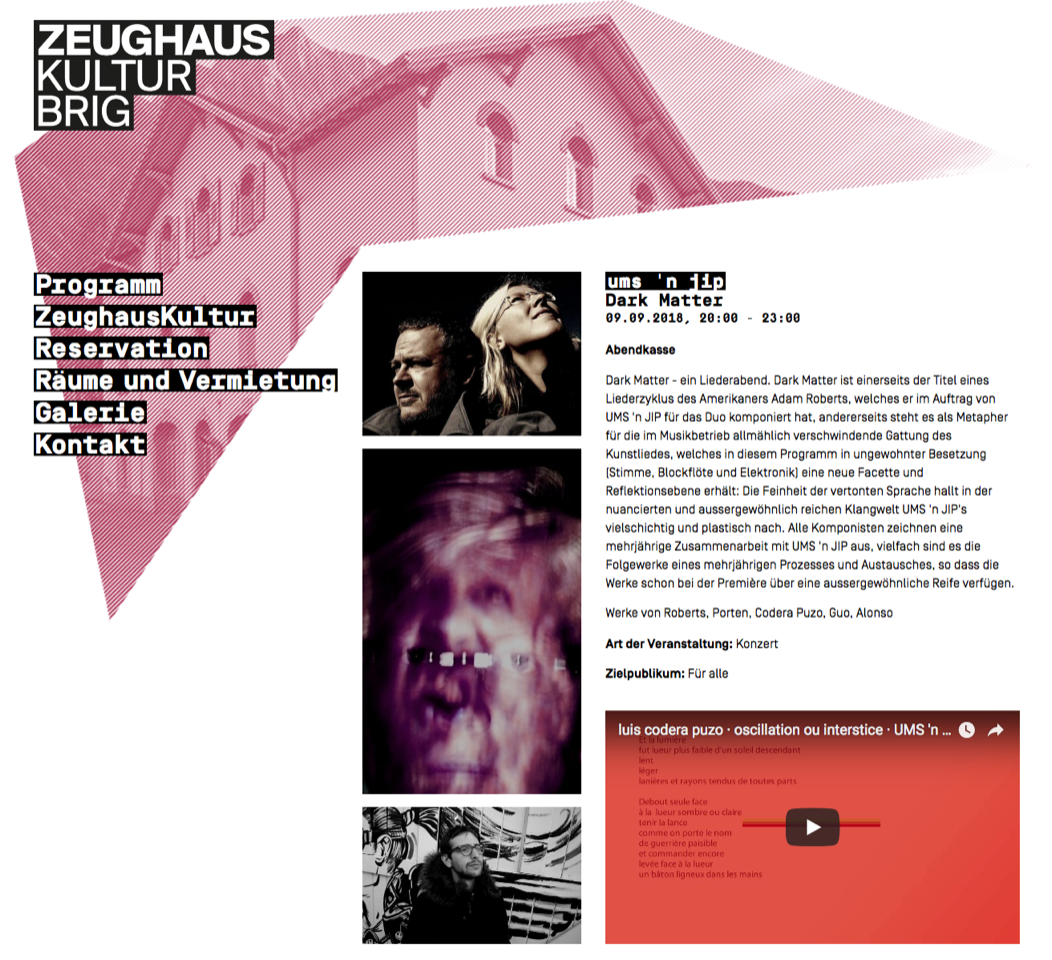
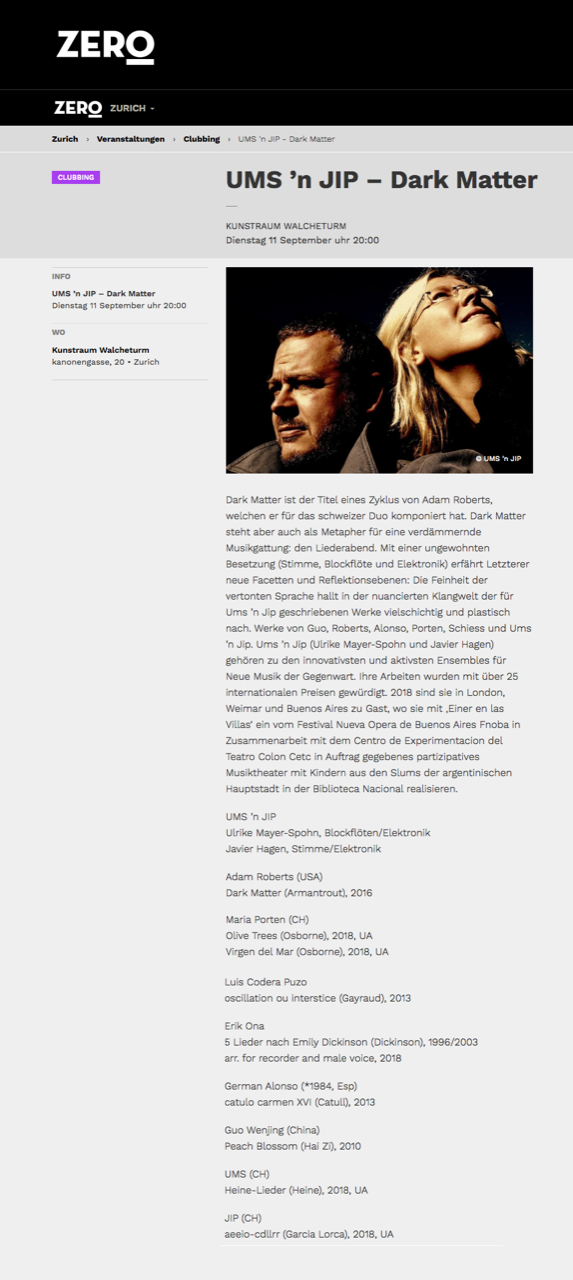
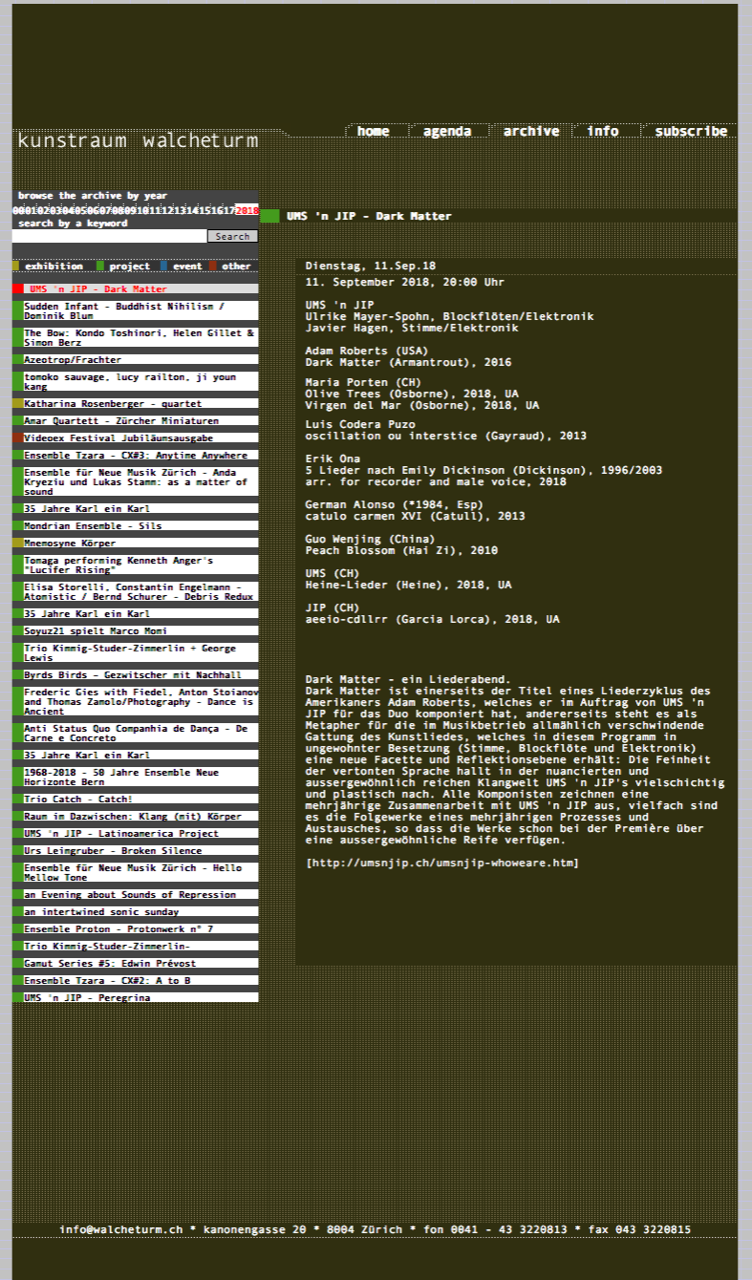
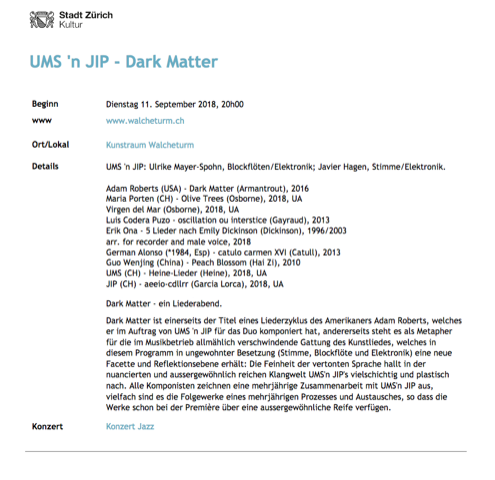
![]()

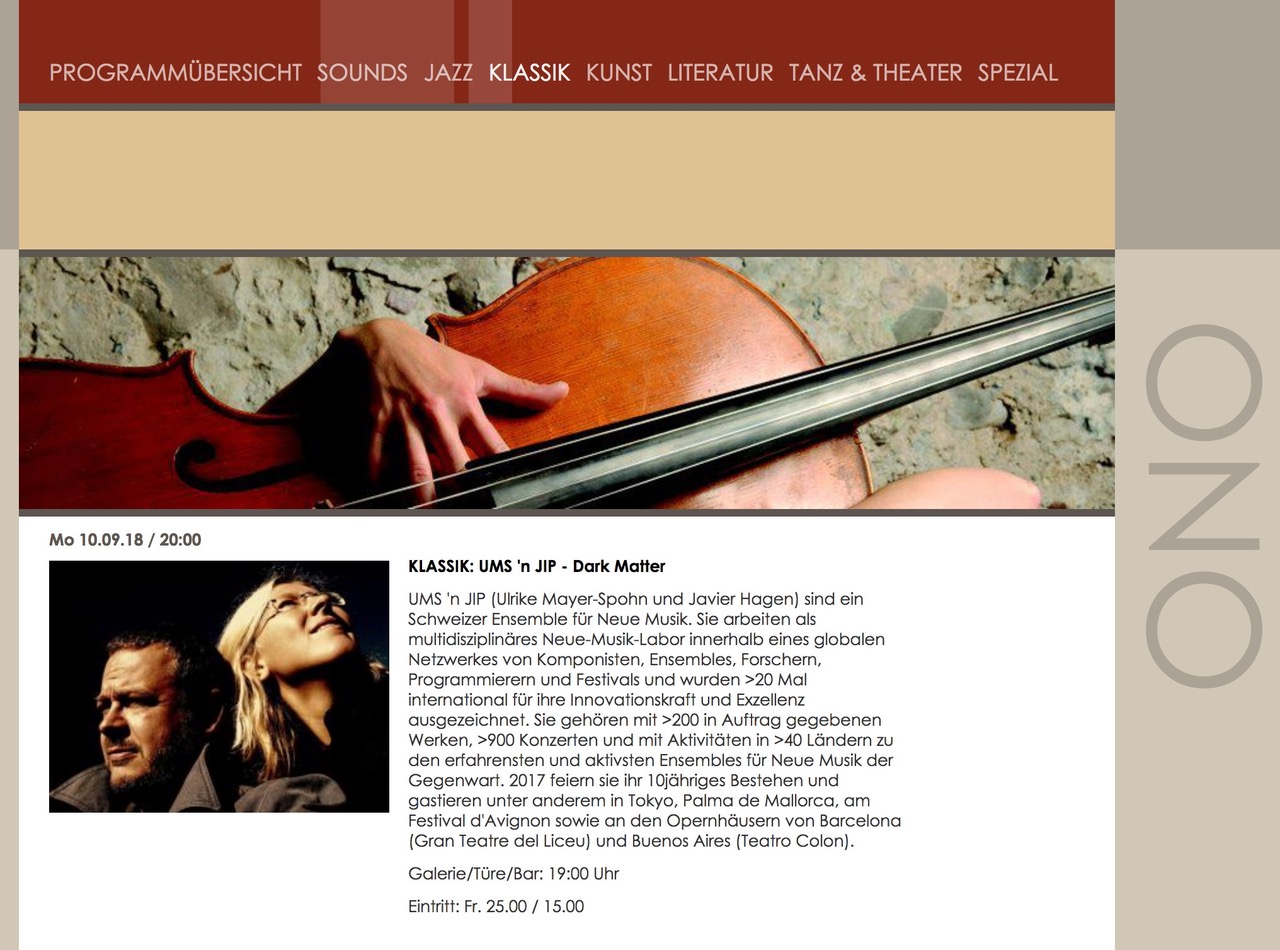
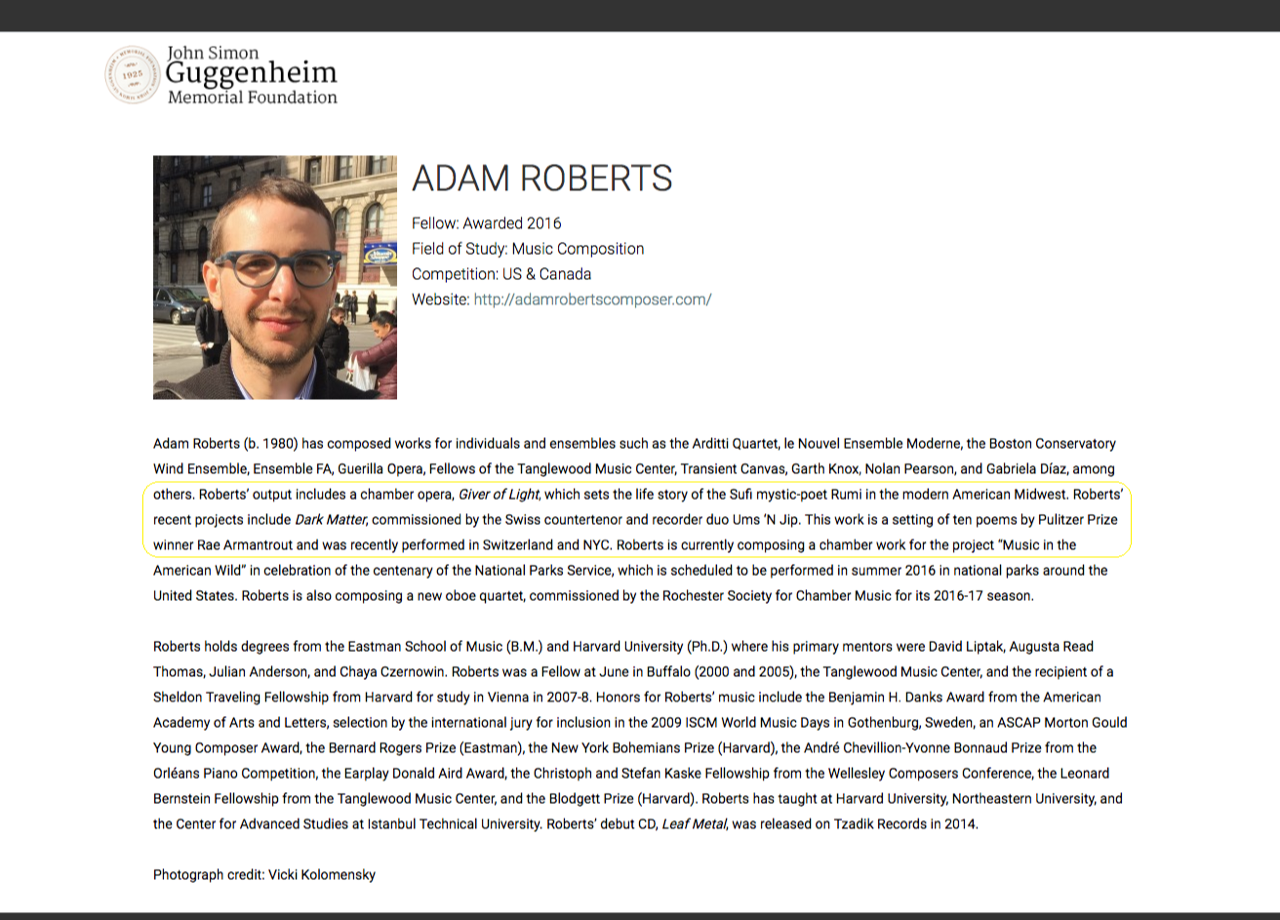
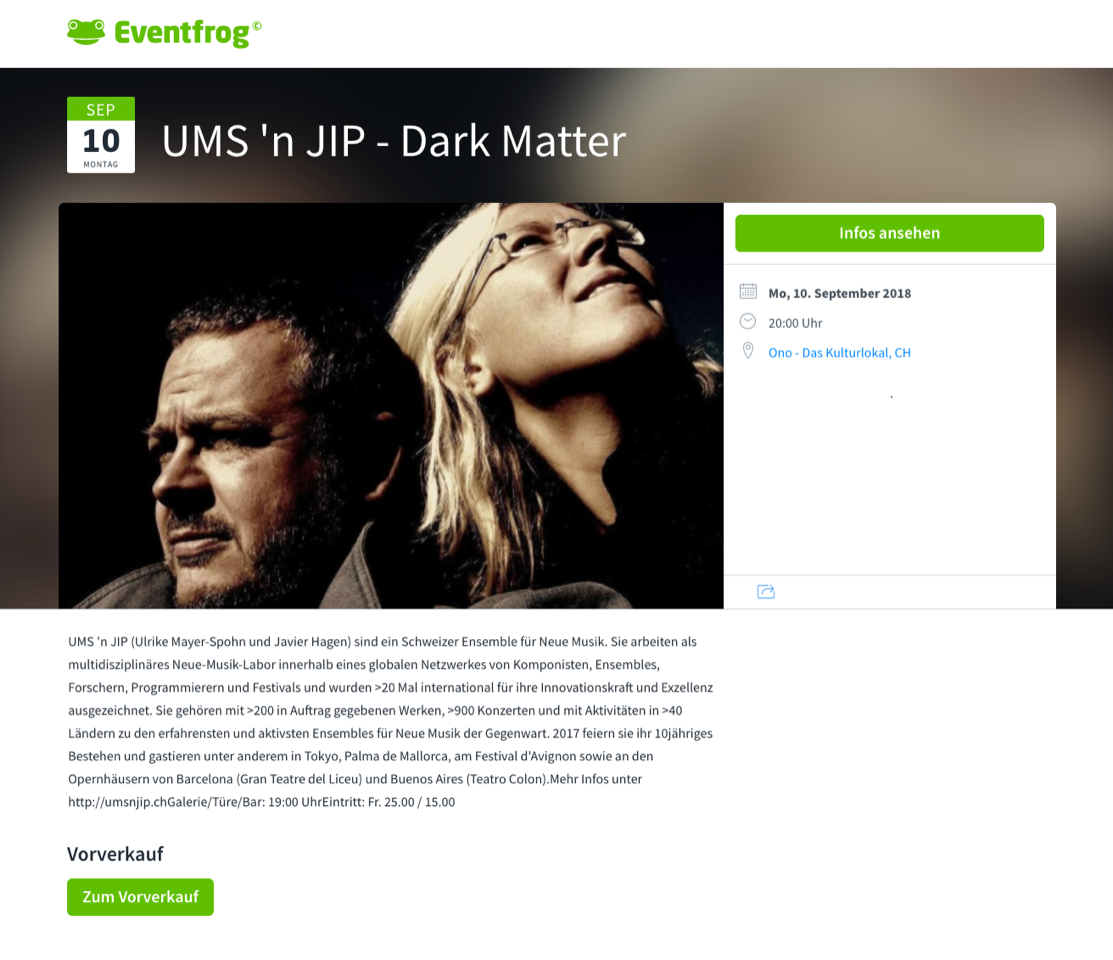
![]()
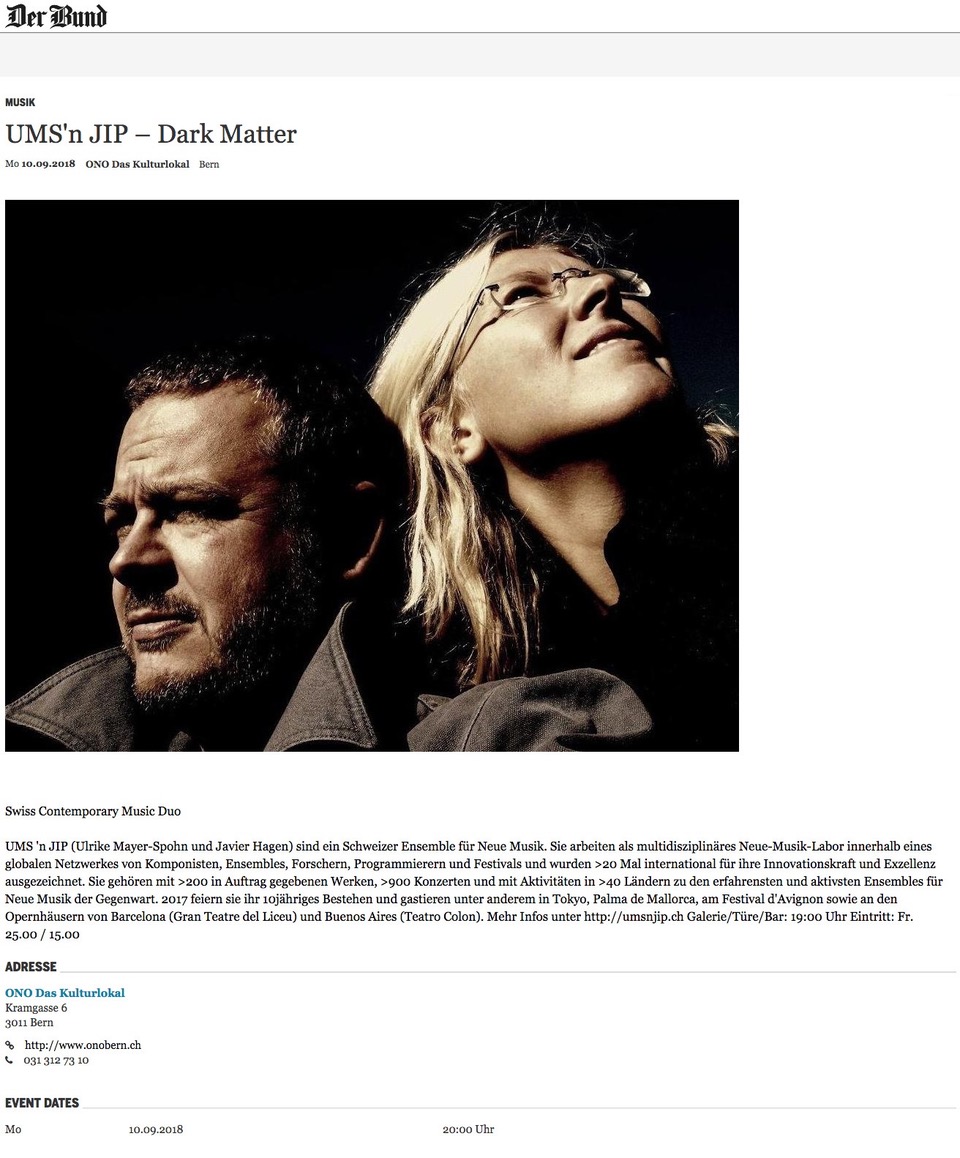
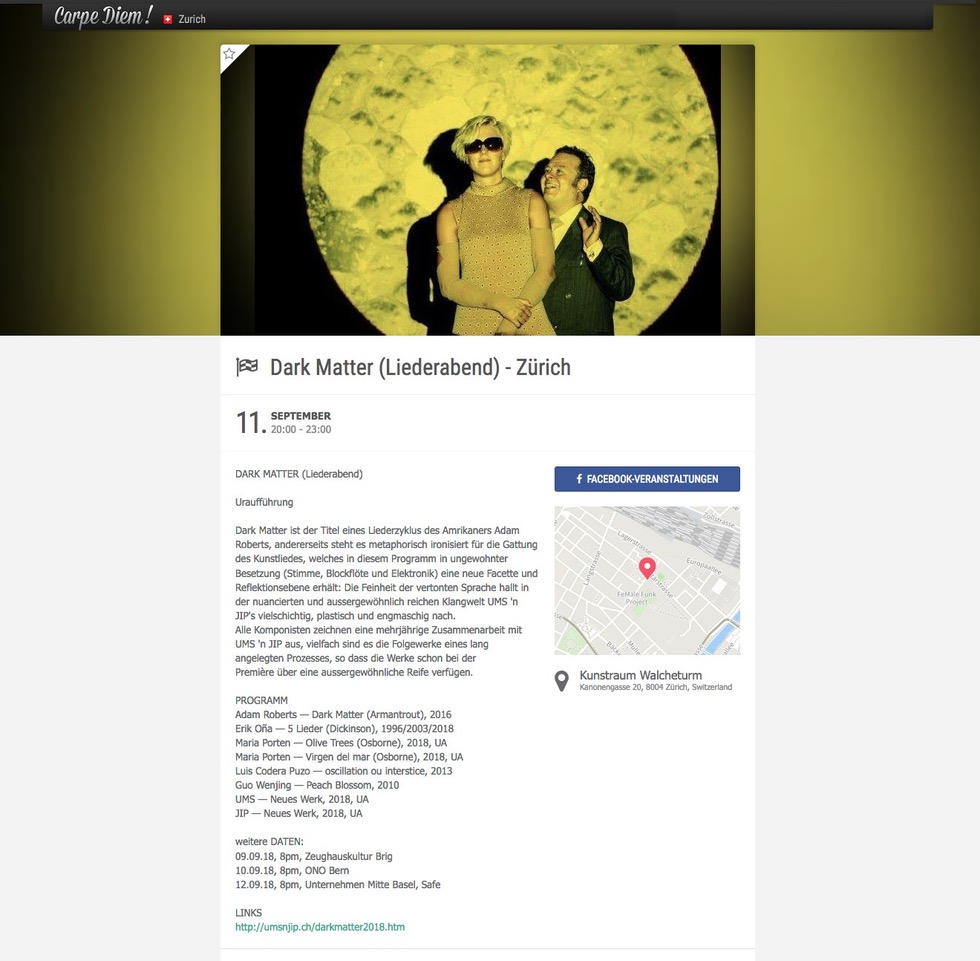
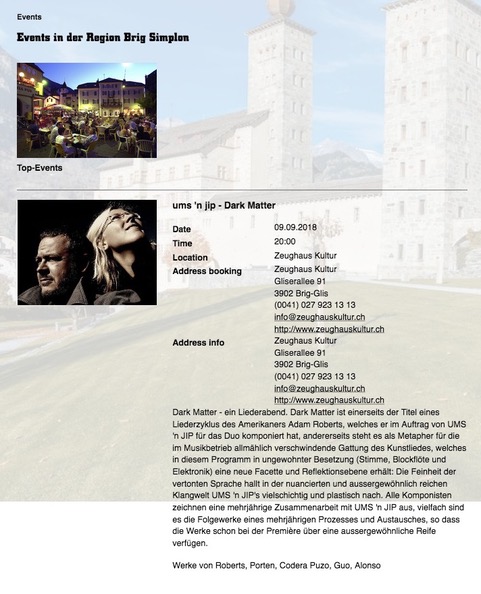
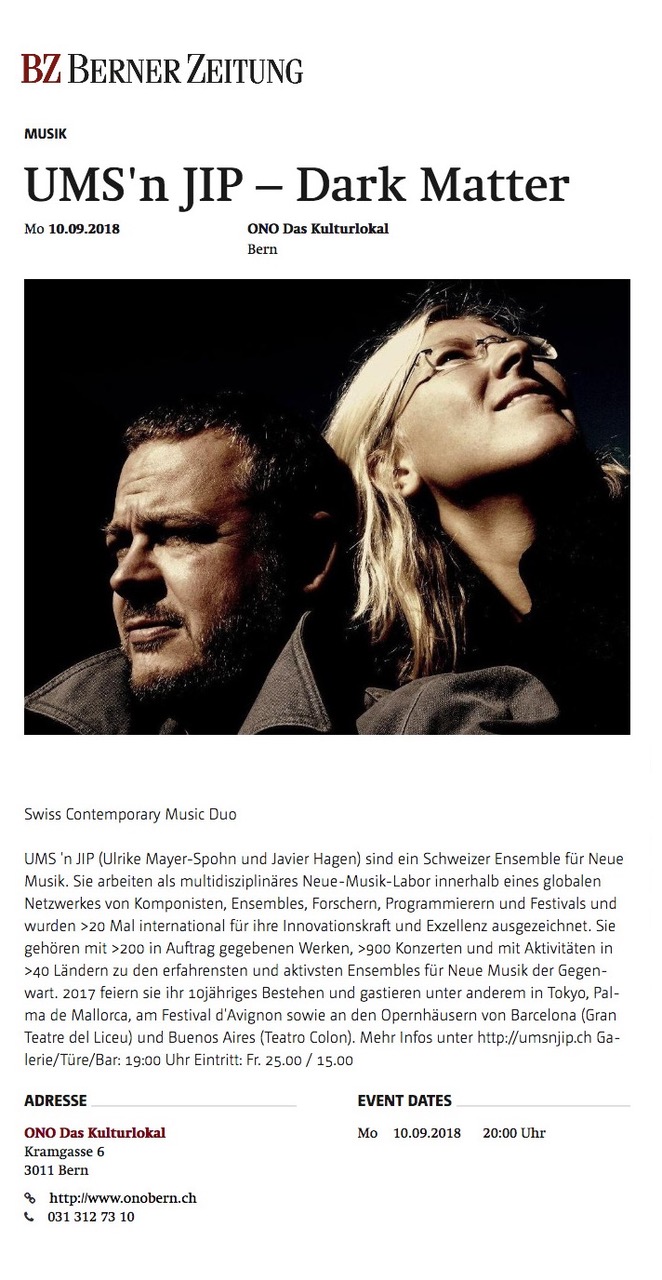
![]()
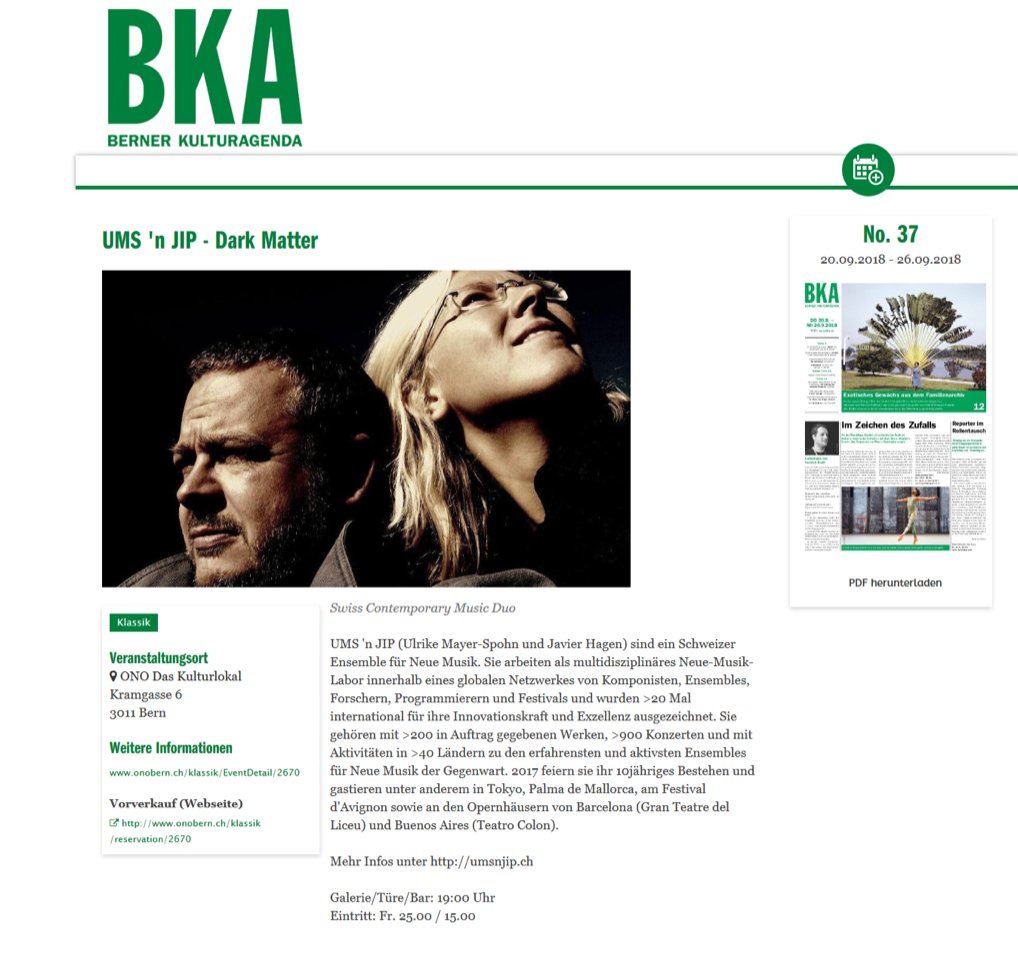
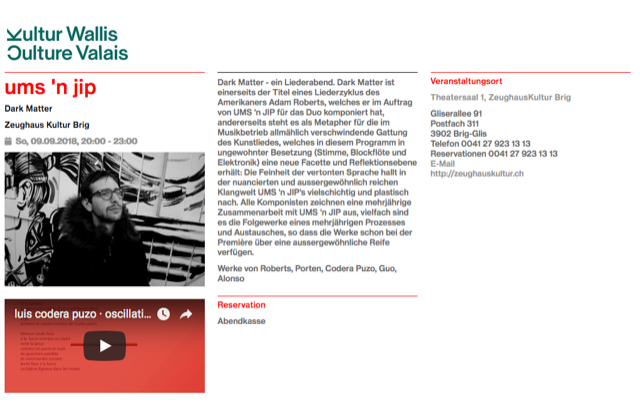
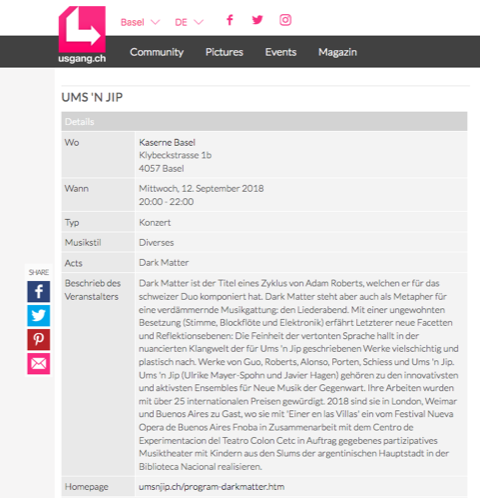
![]()
CONCERT PICS
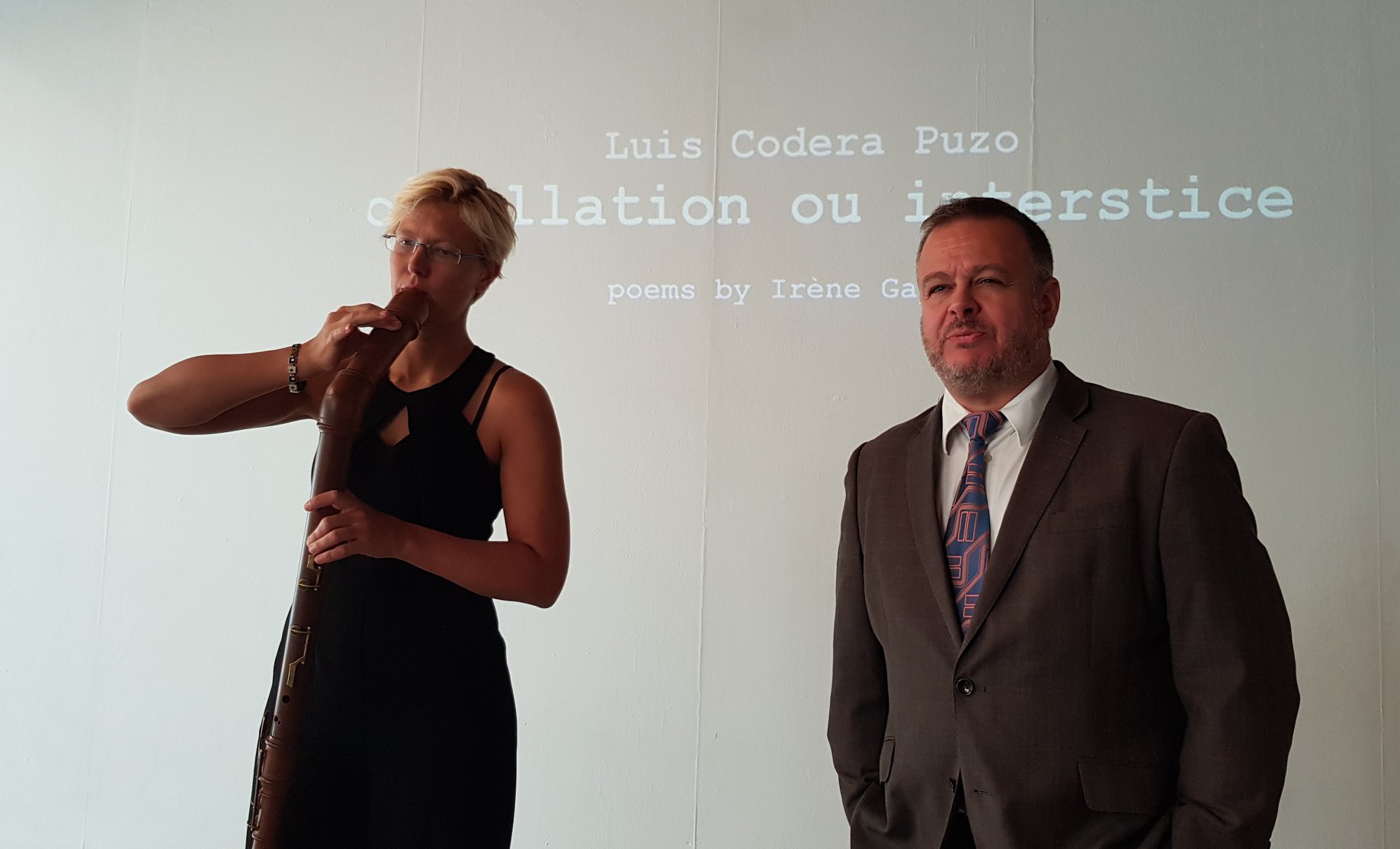
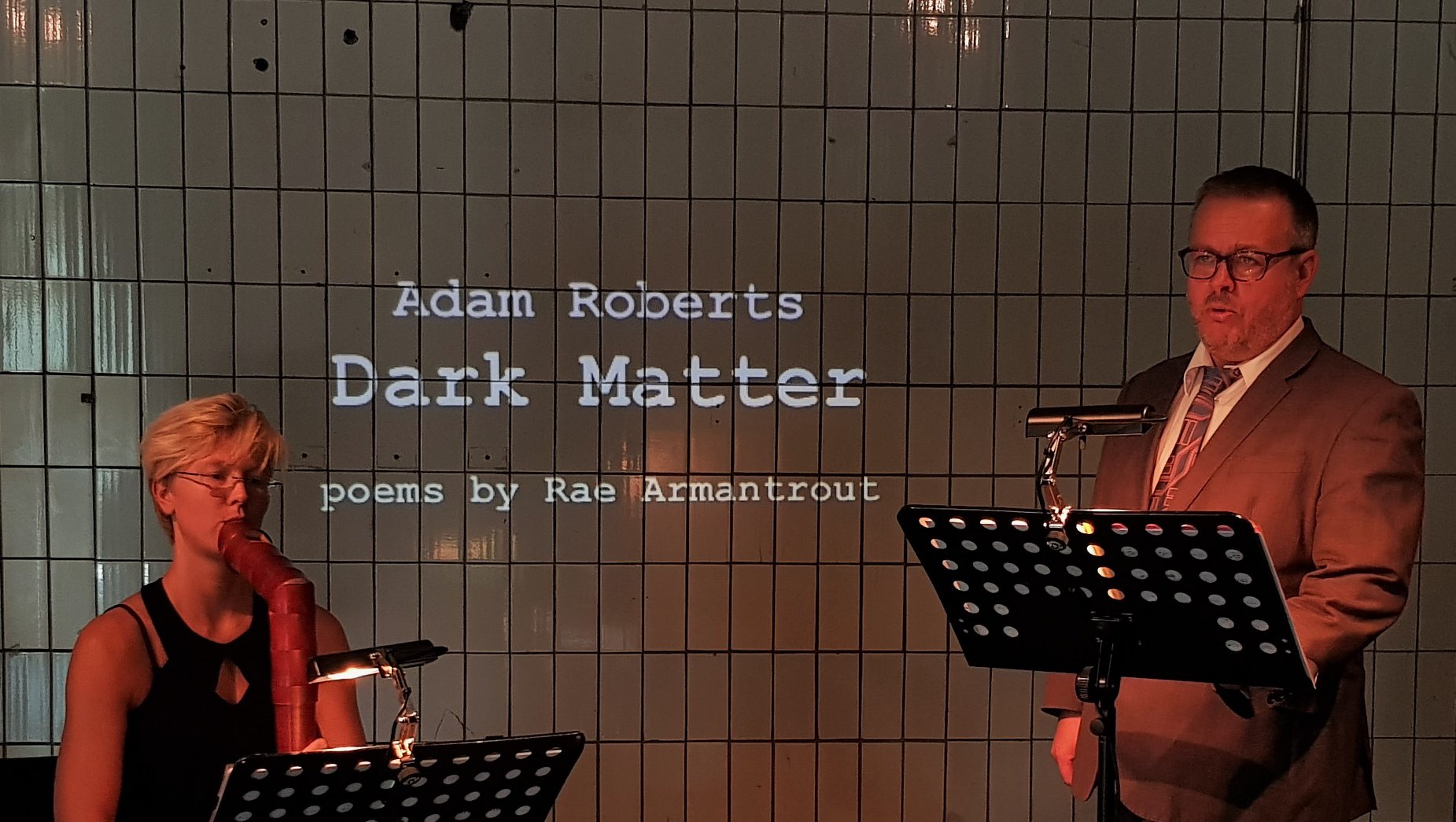
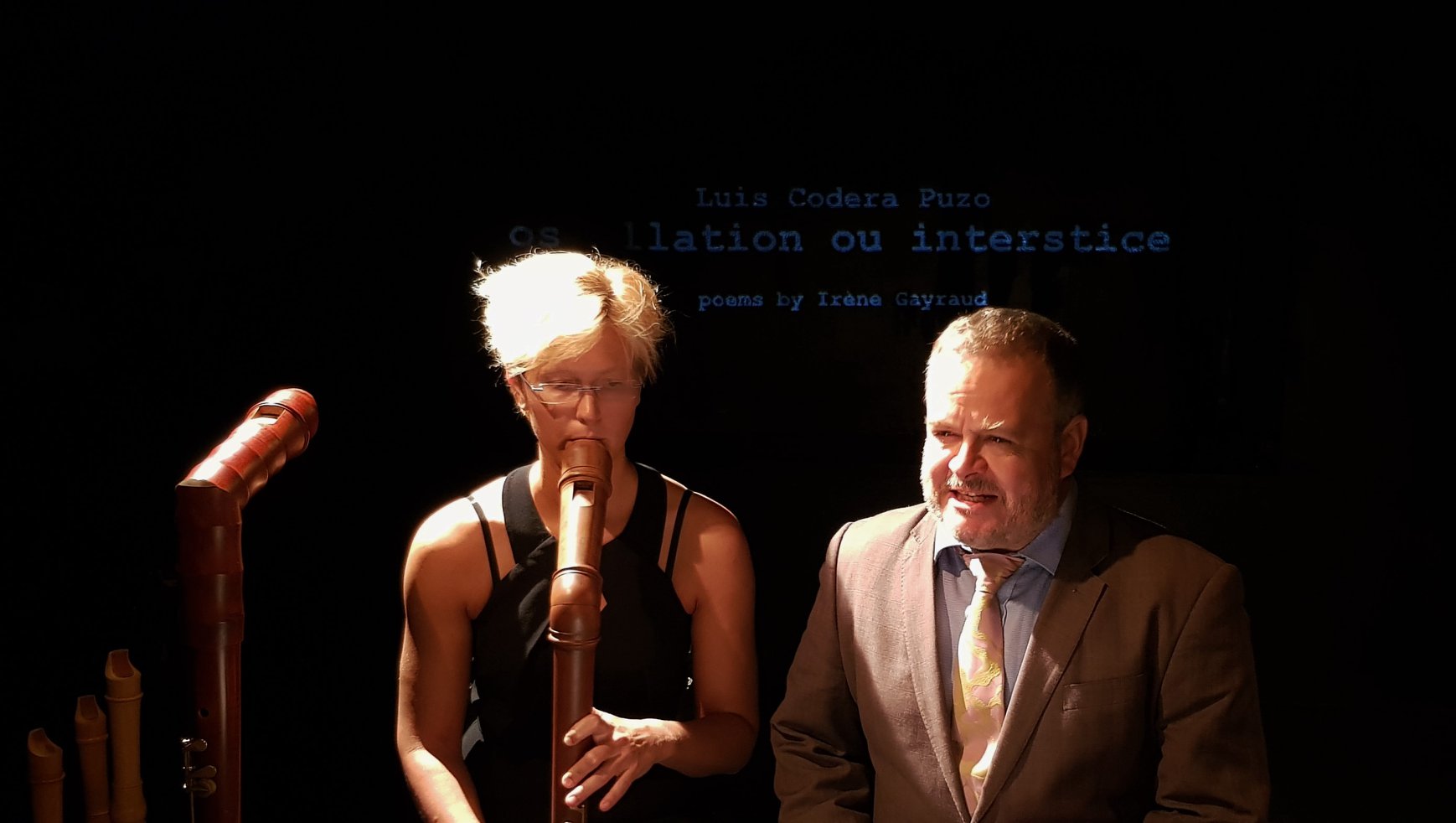
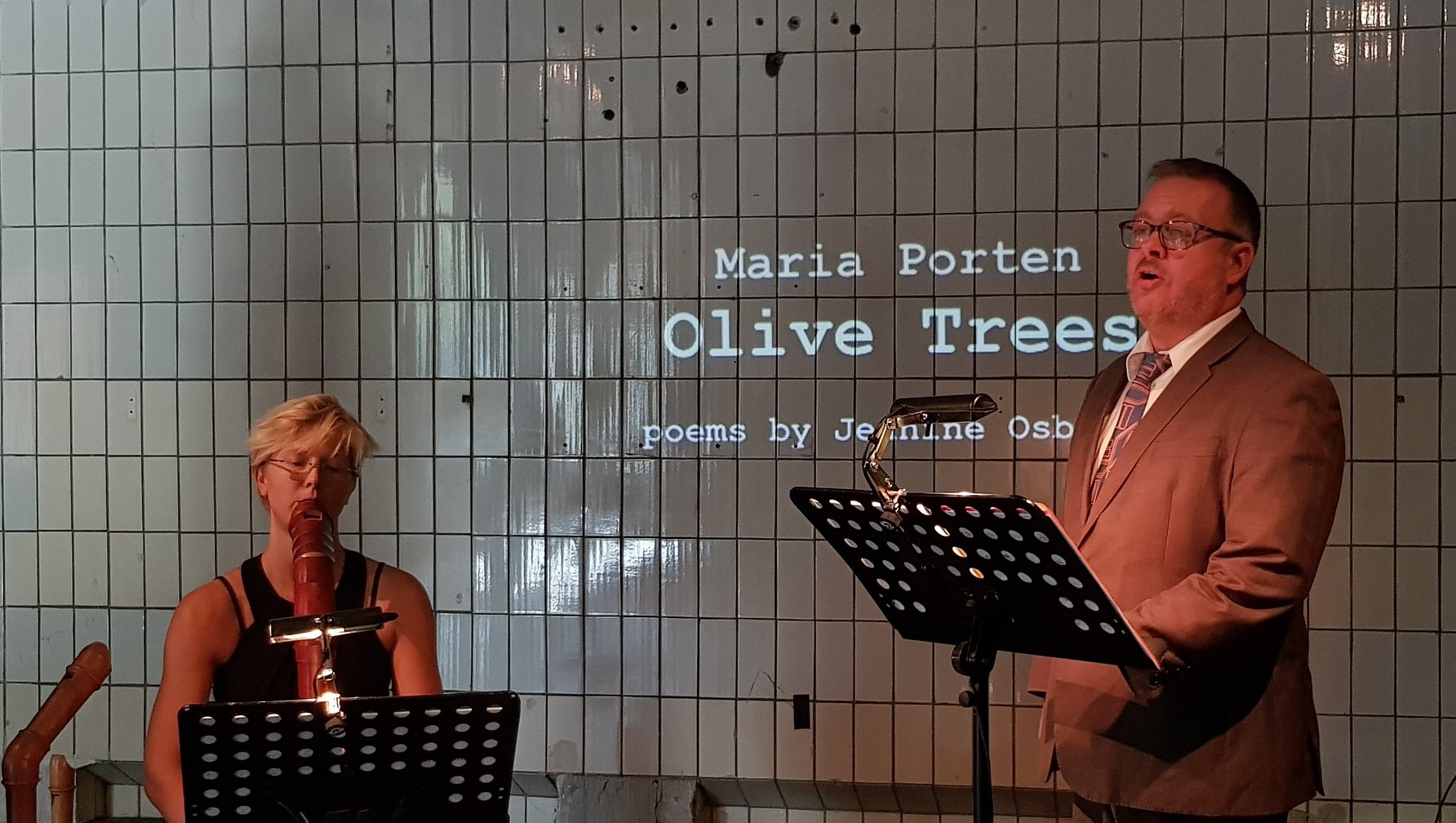
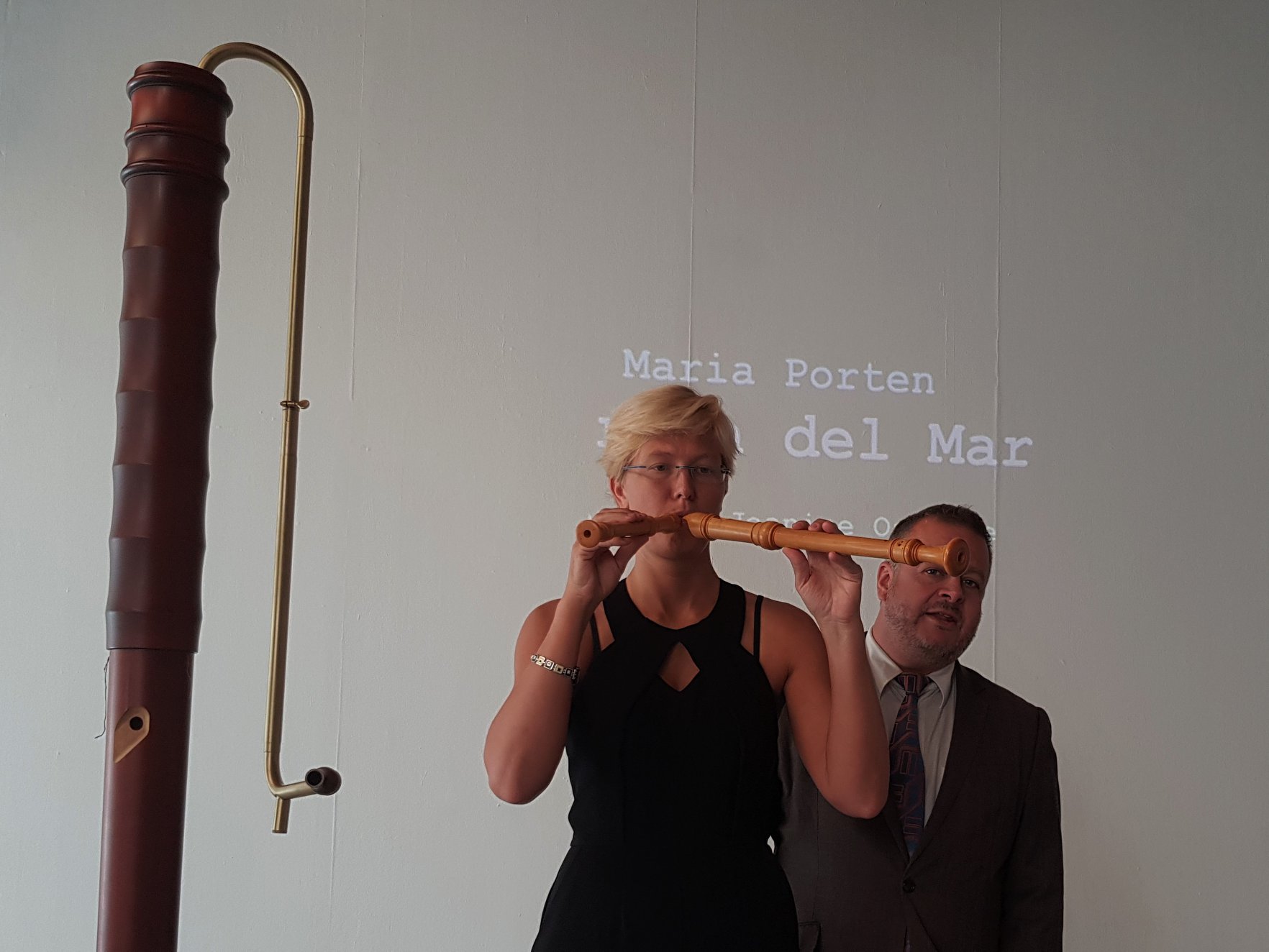
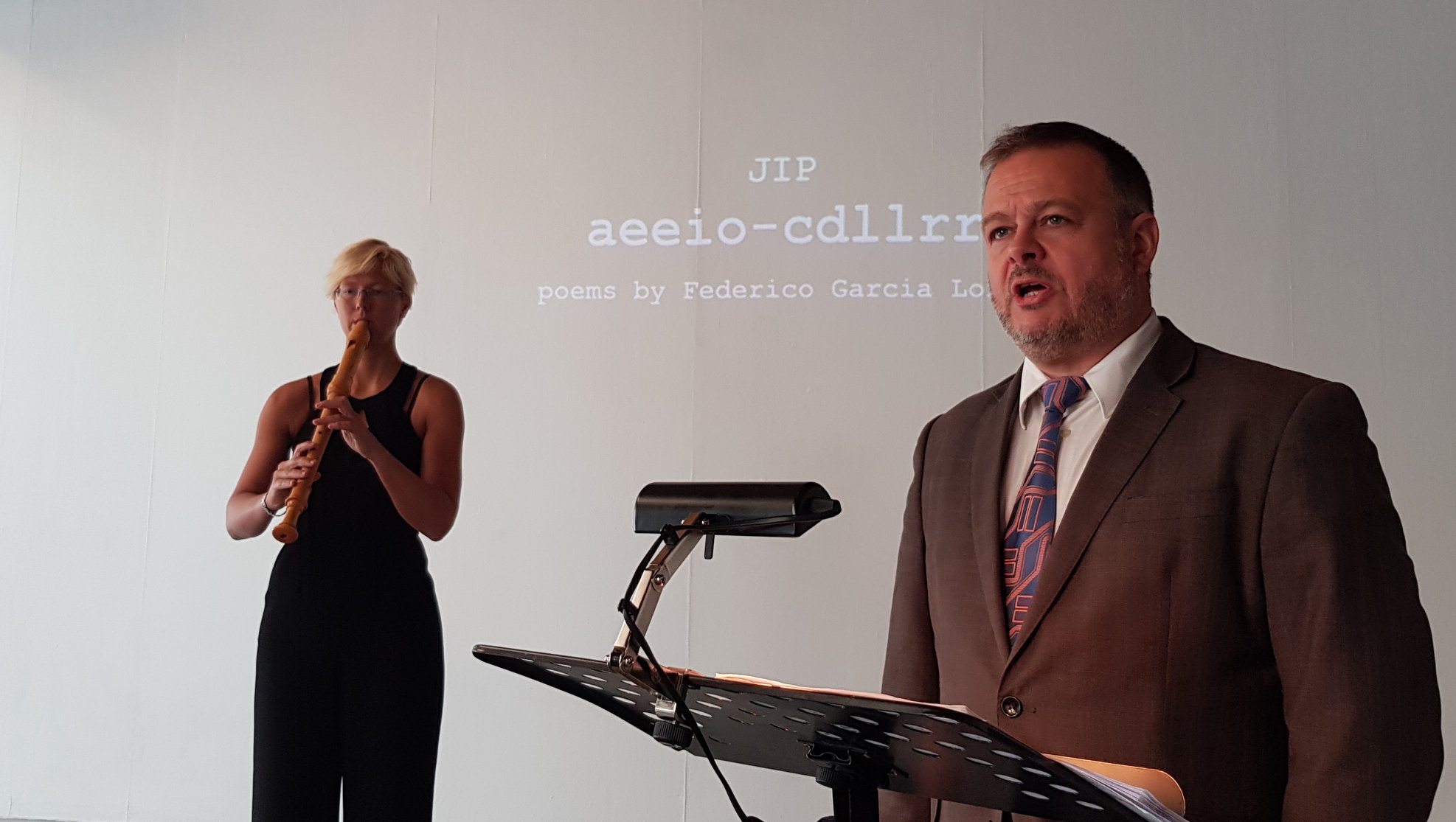
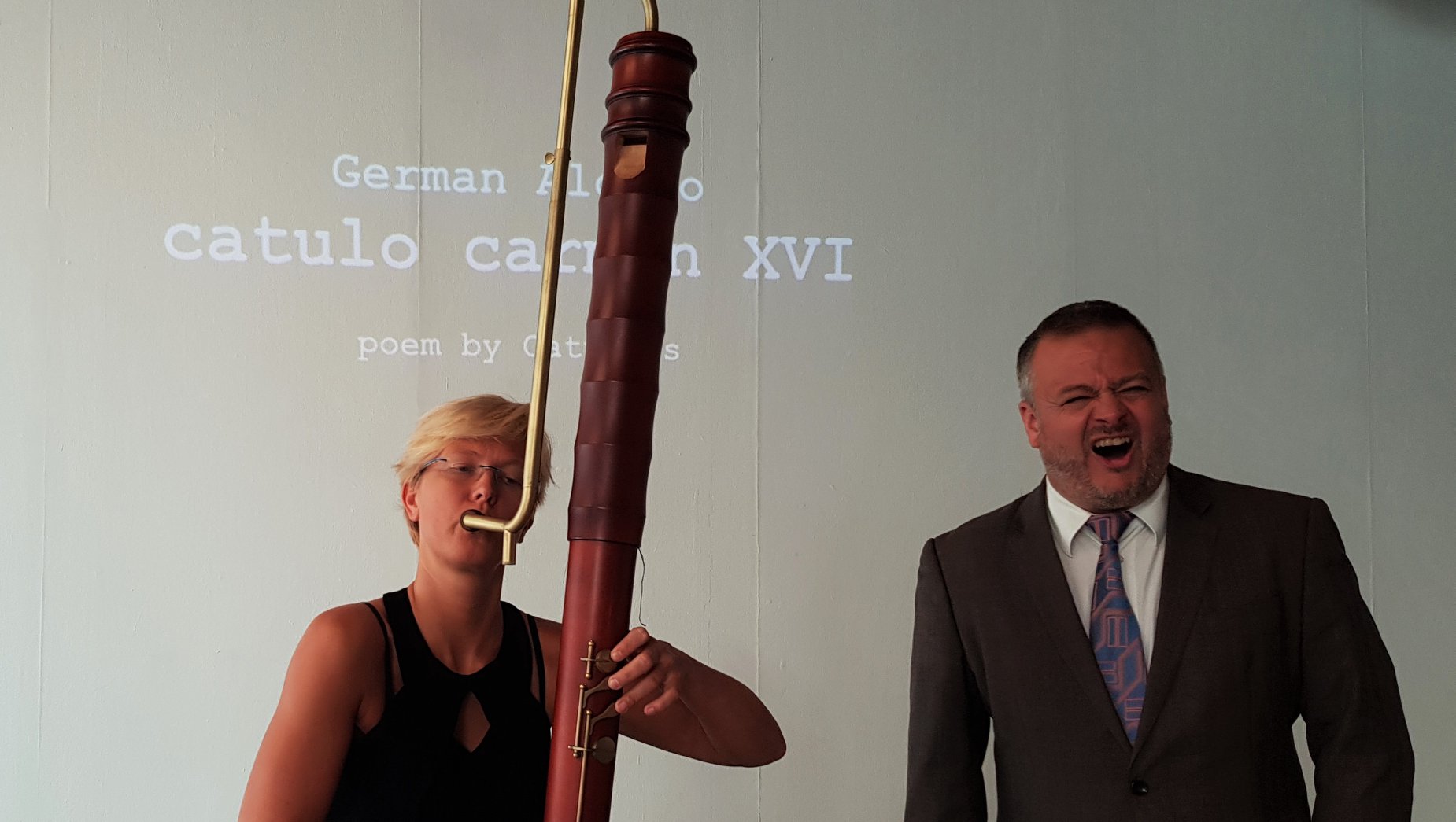
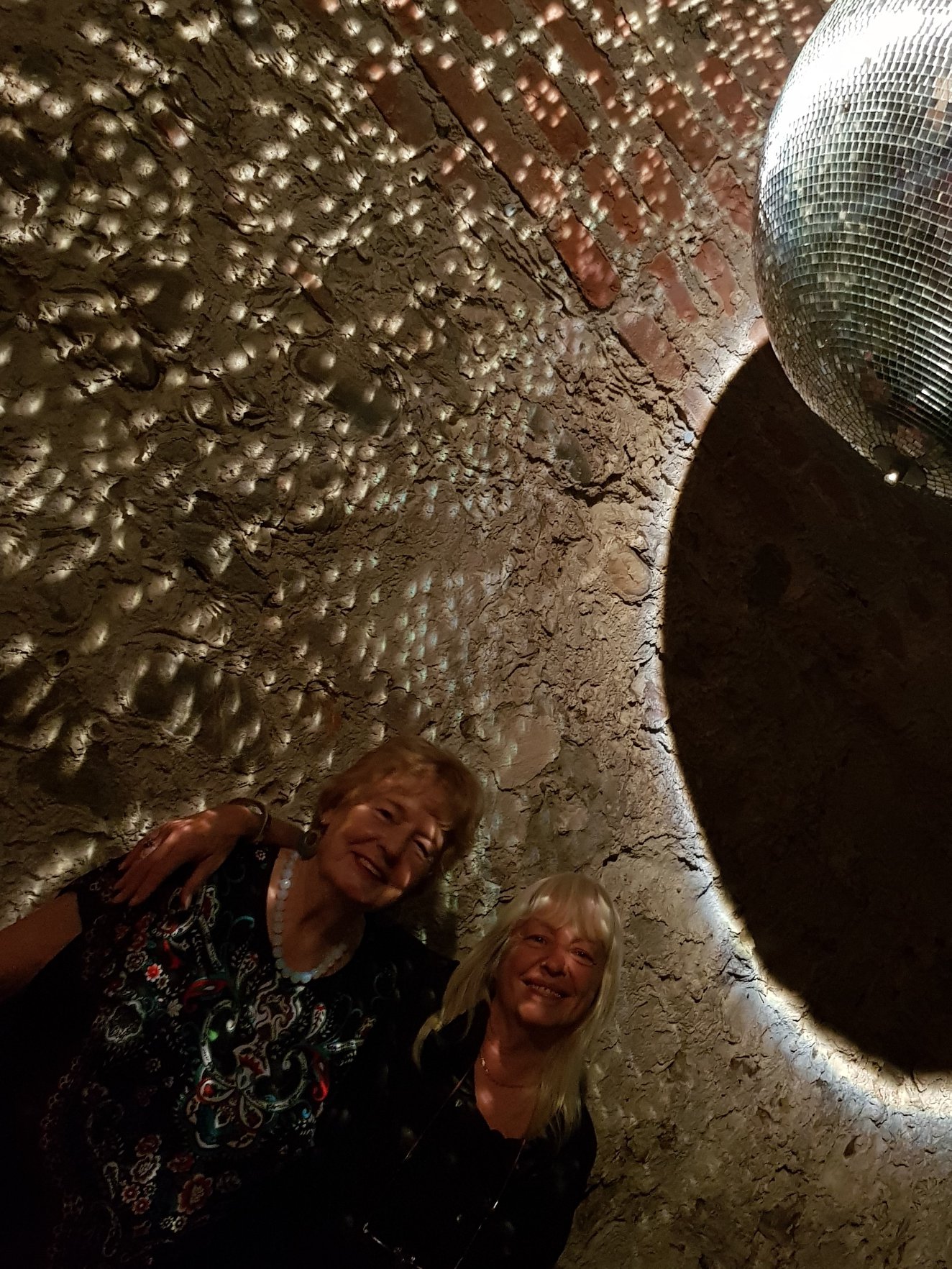
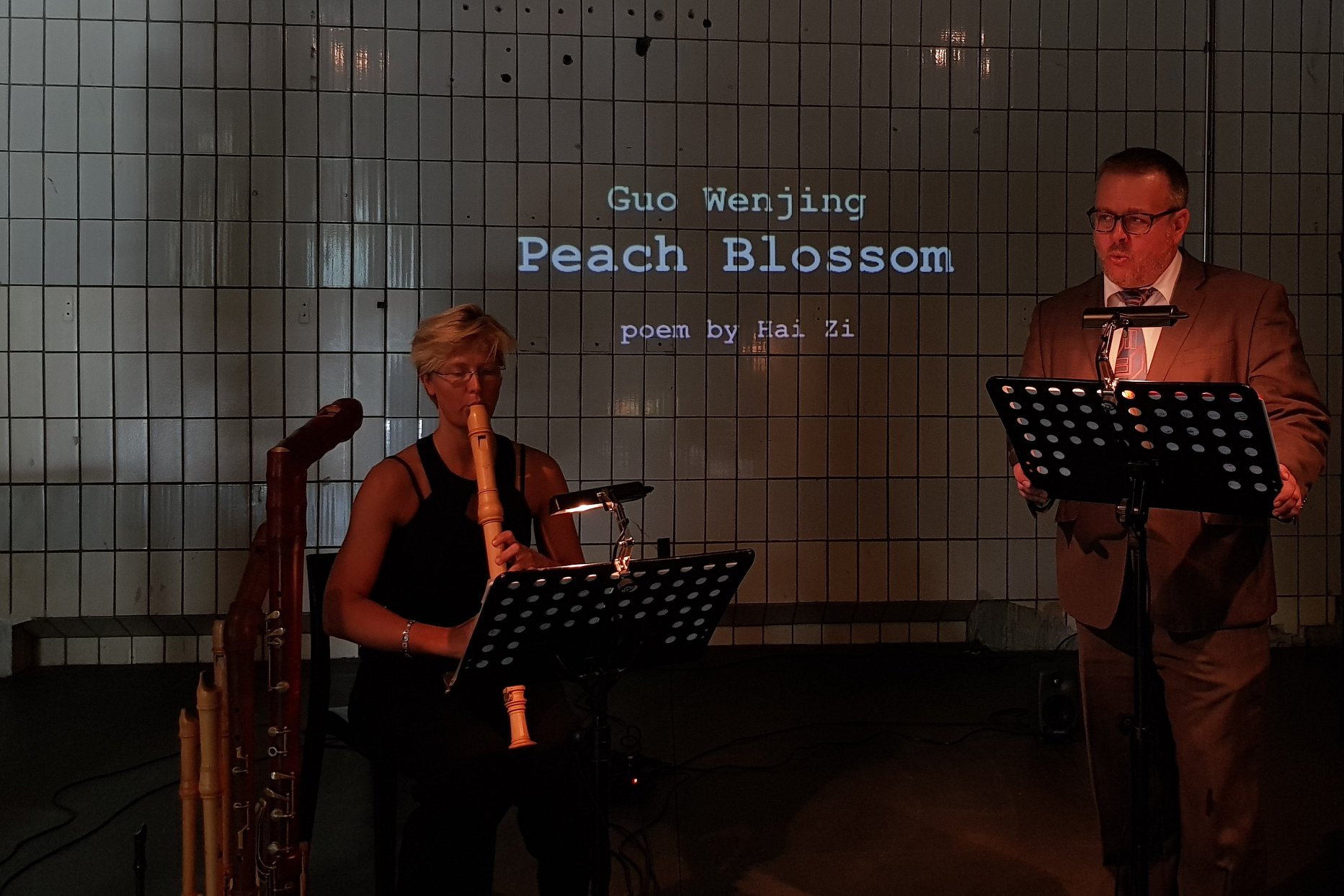
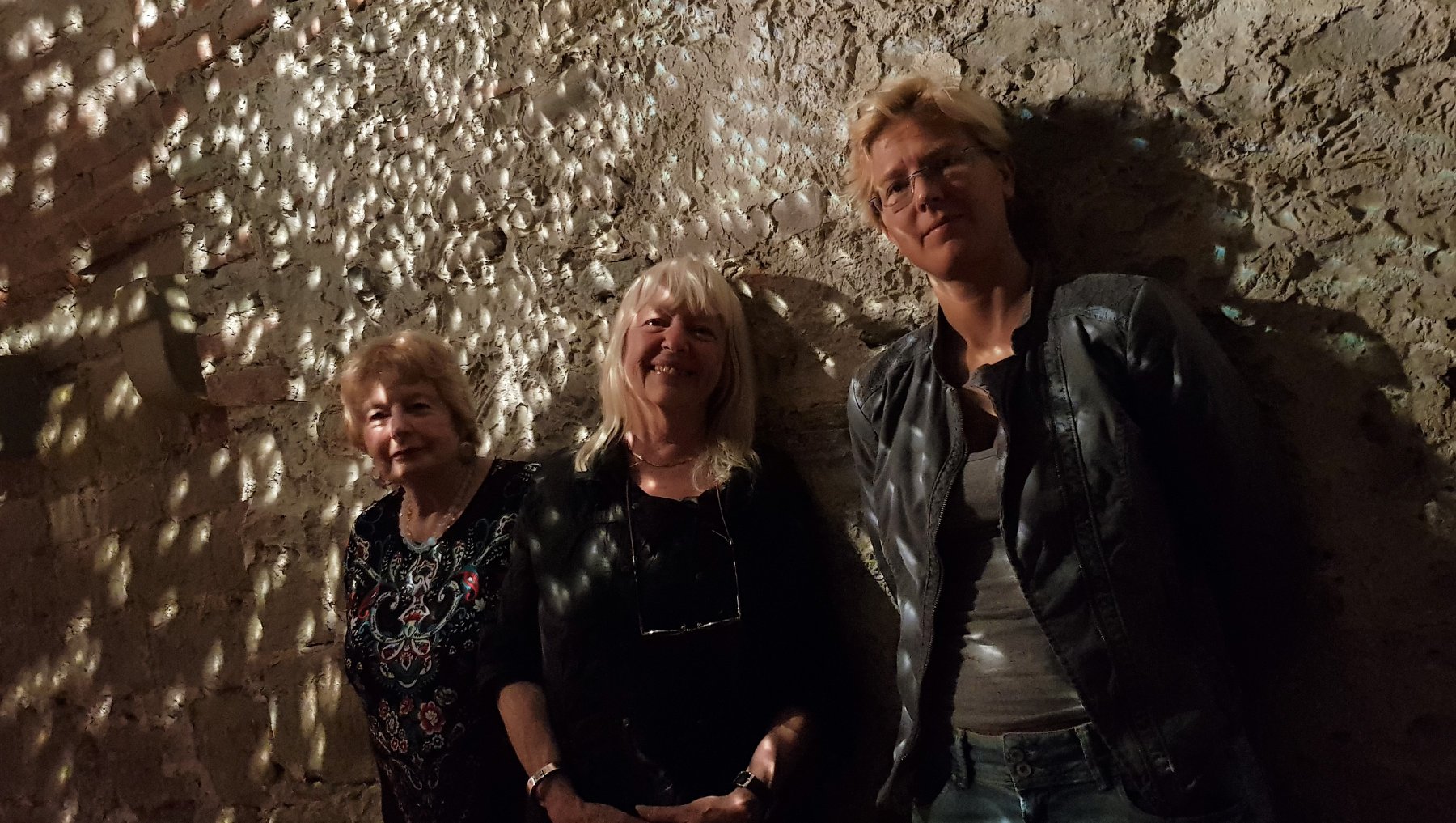
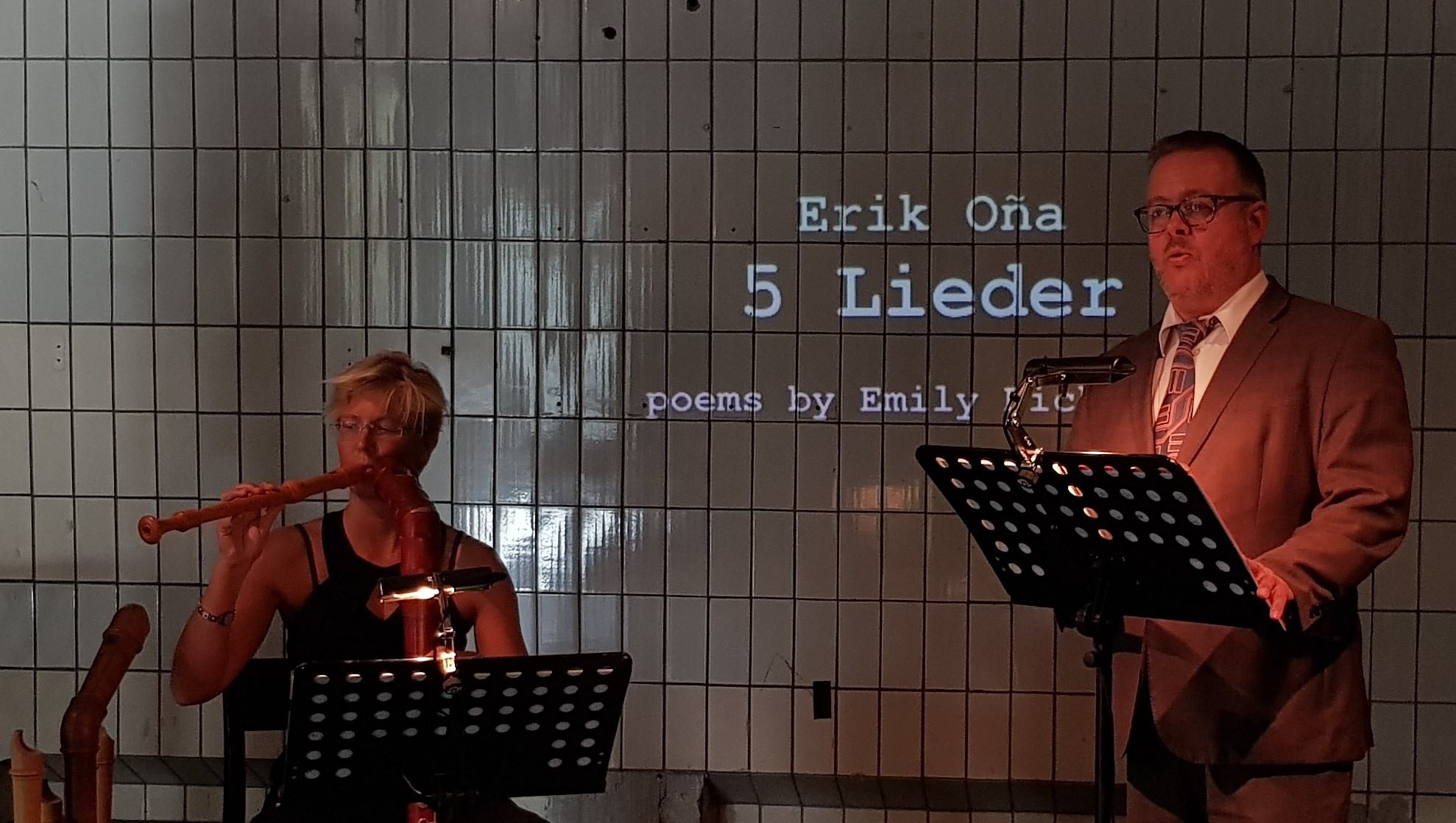
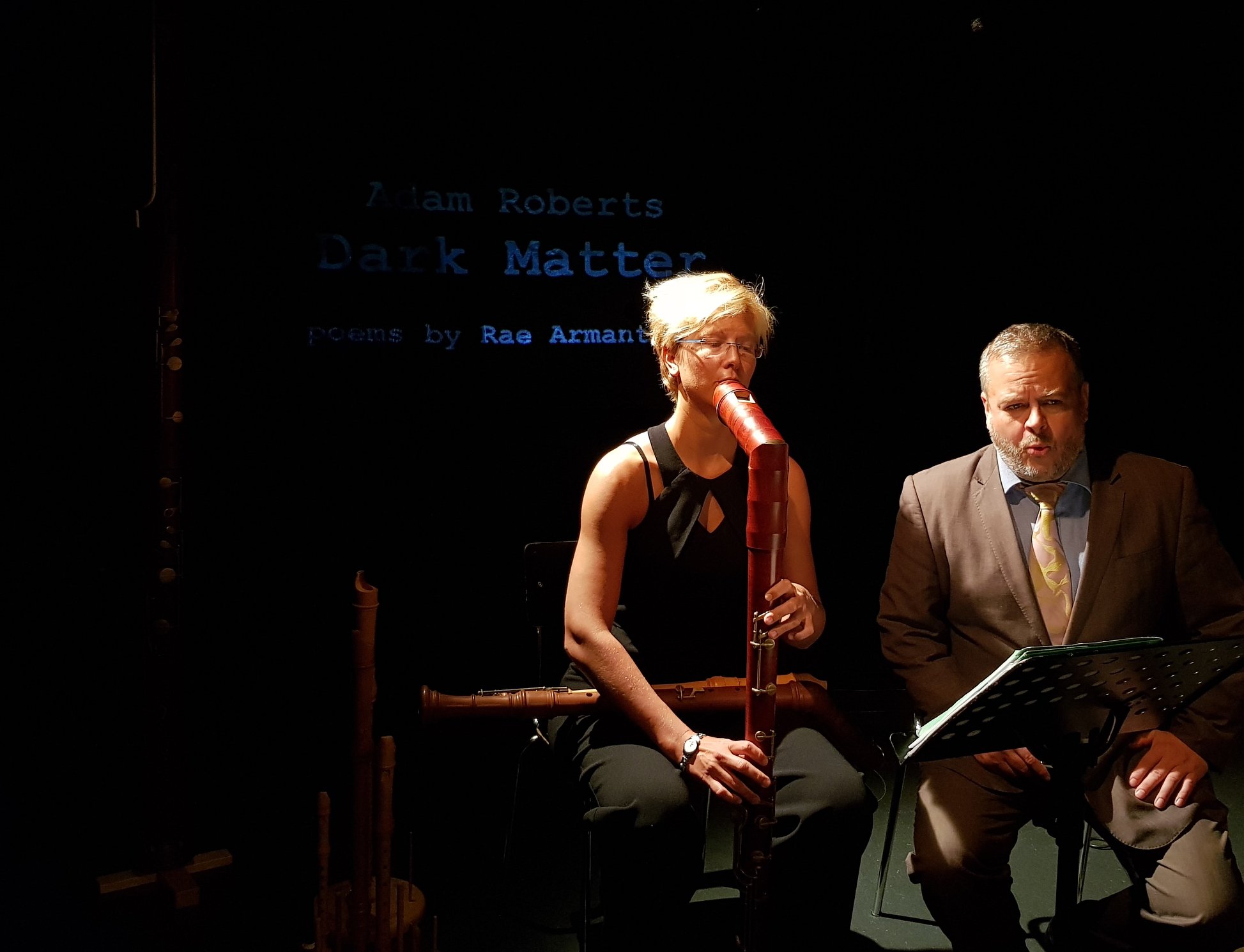
![]()
VENUES

![]()
SUPPORTS
